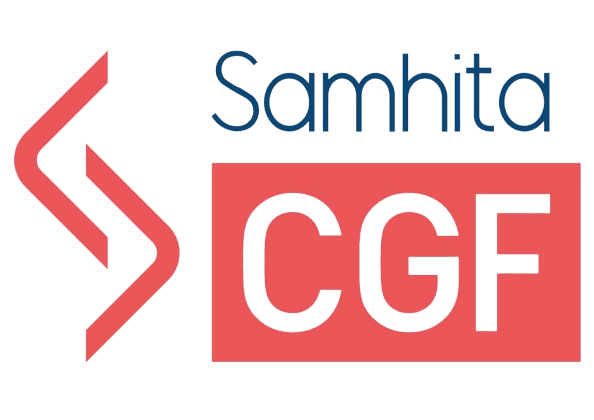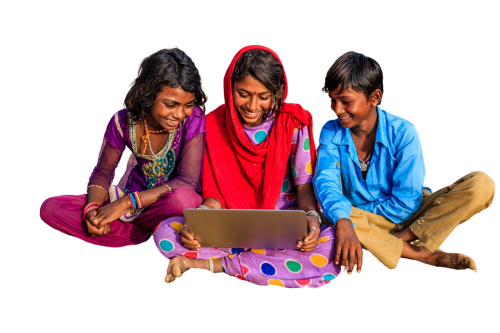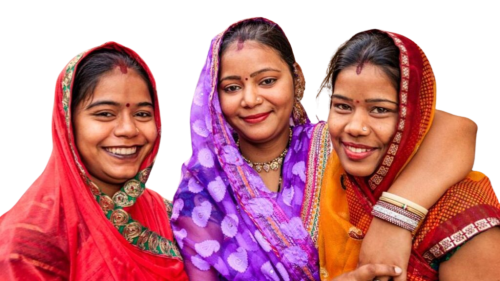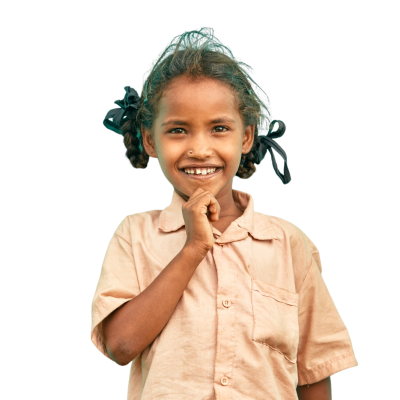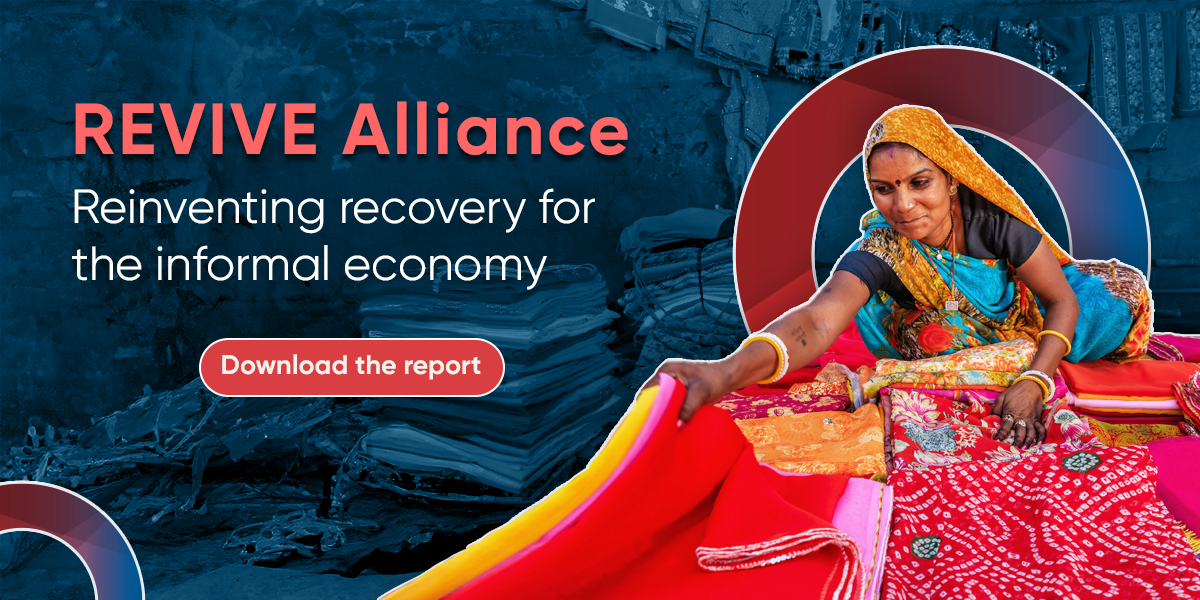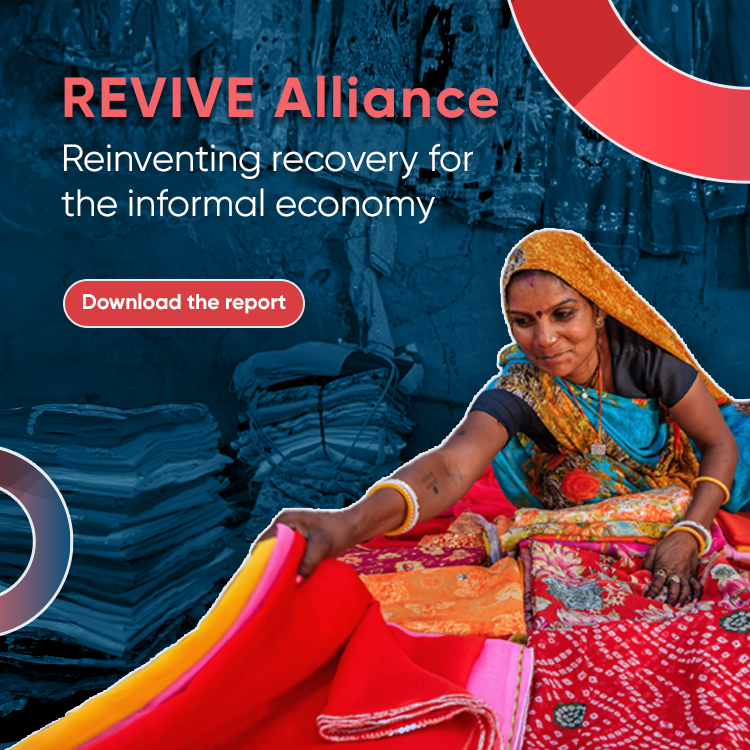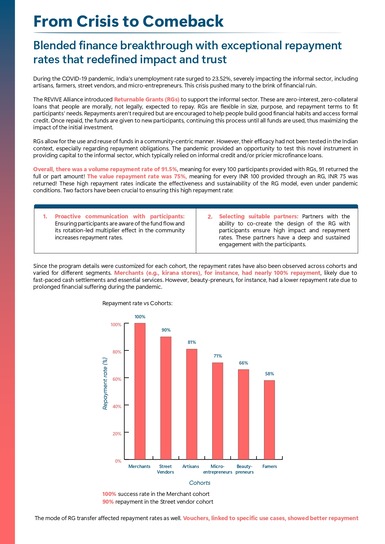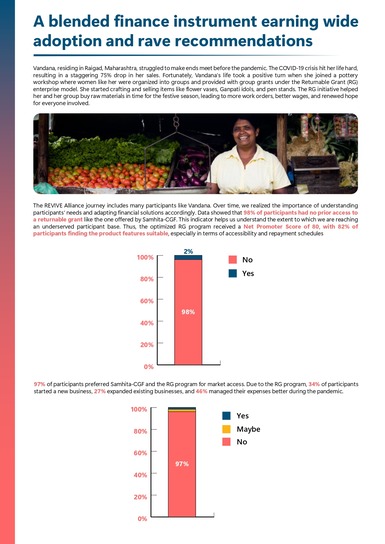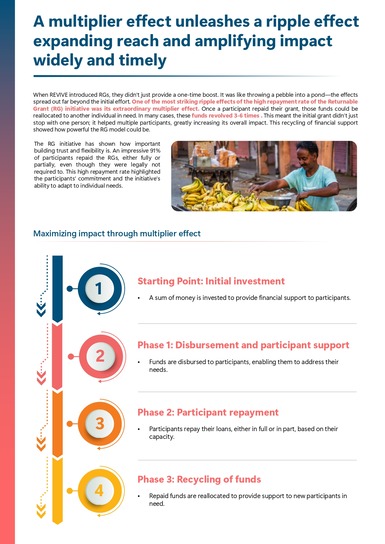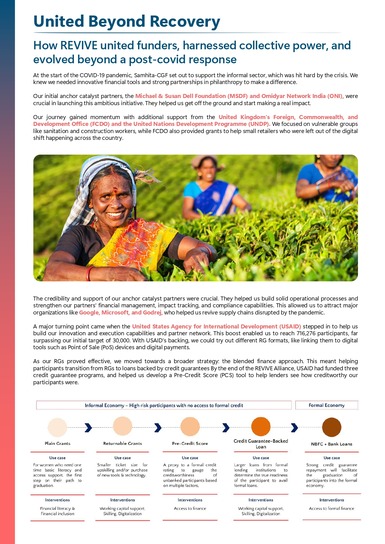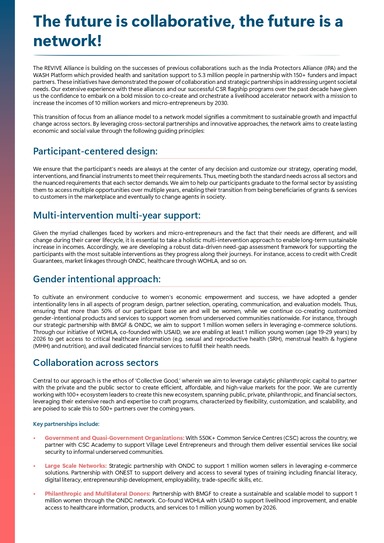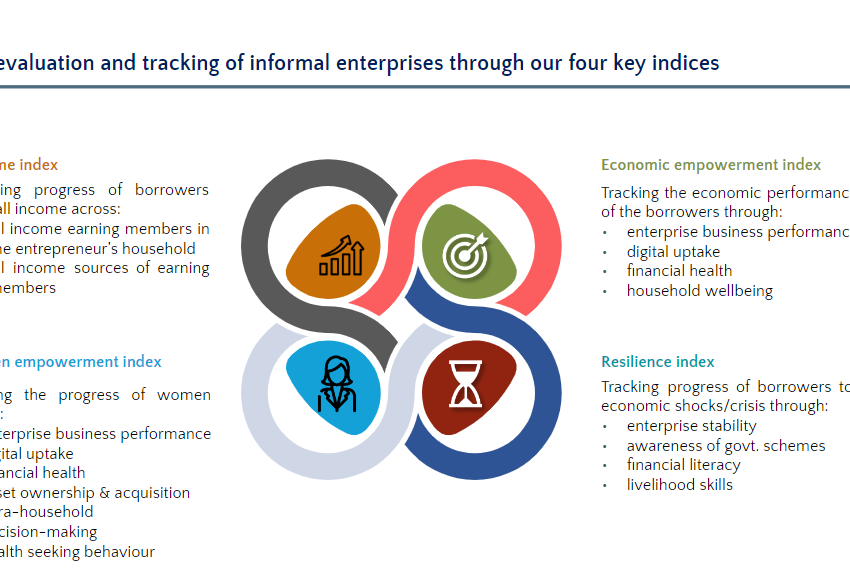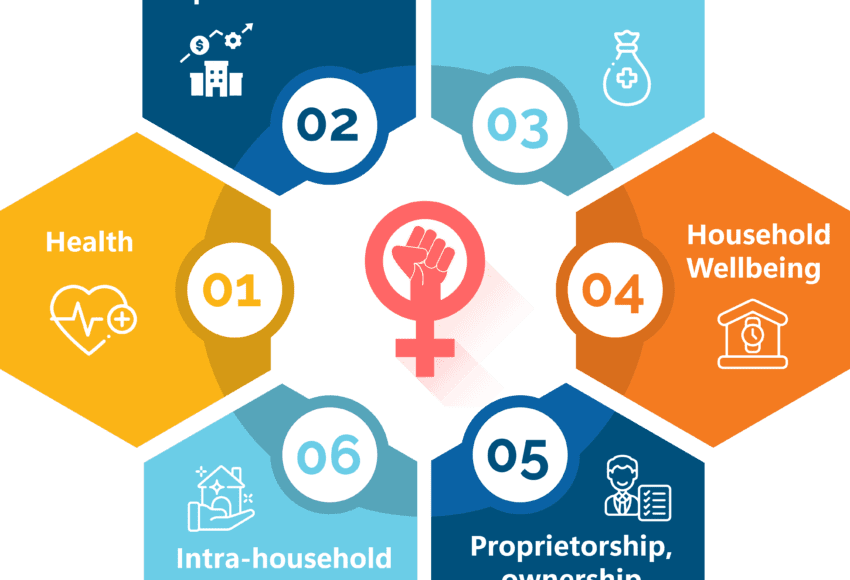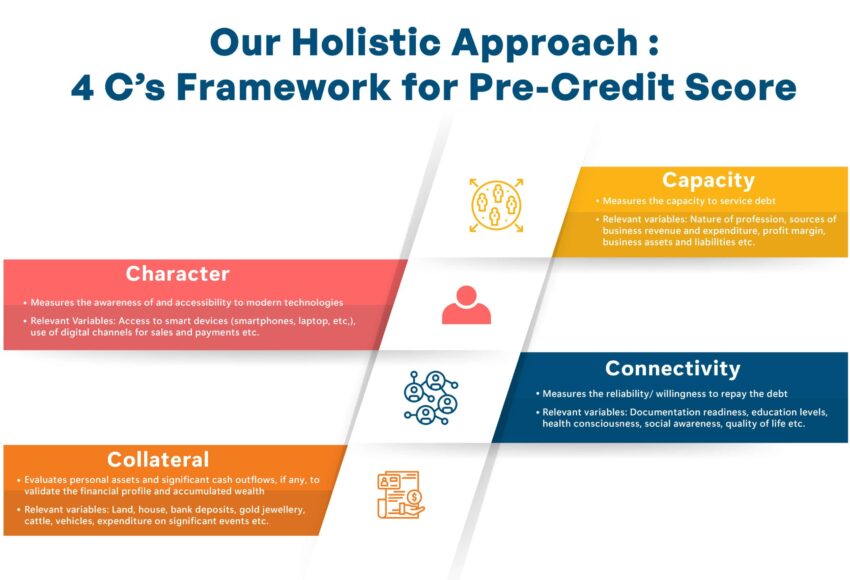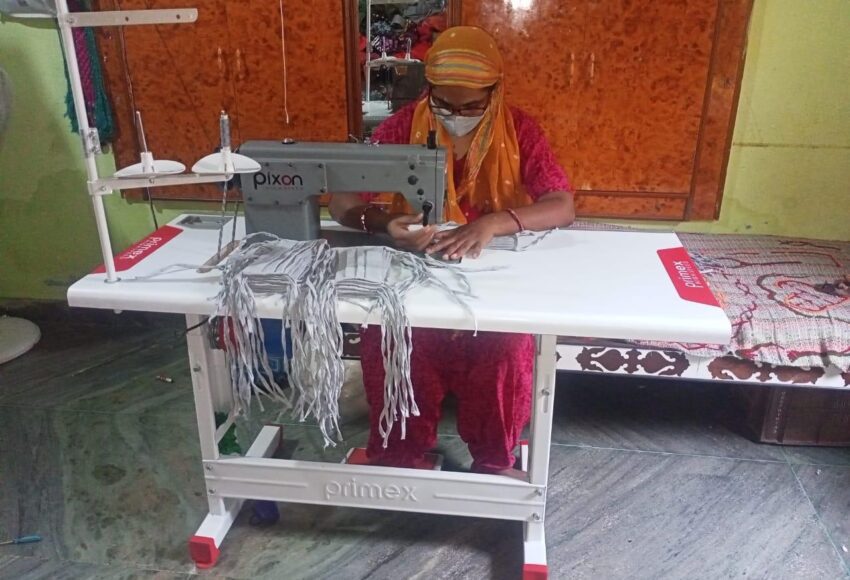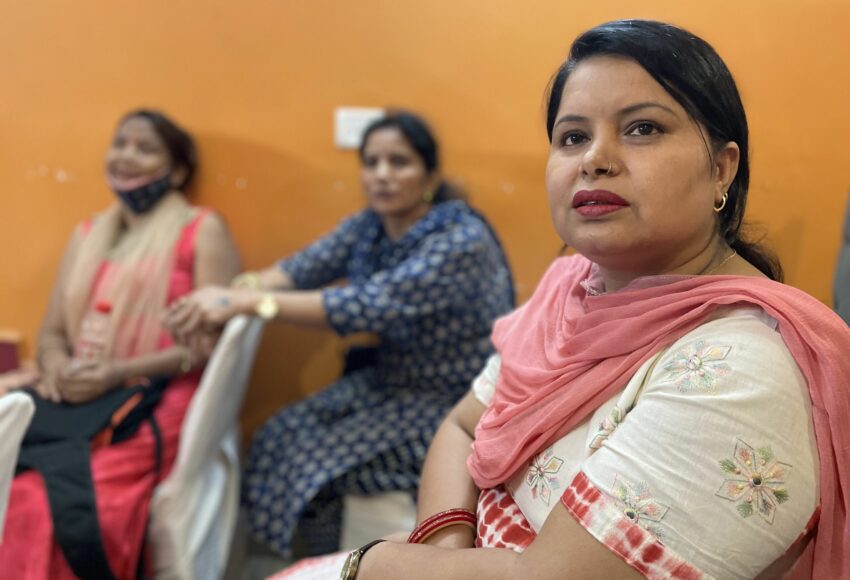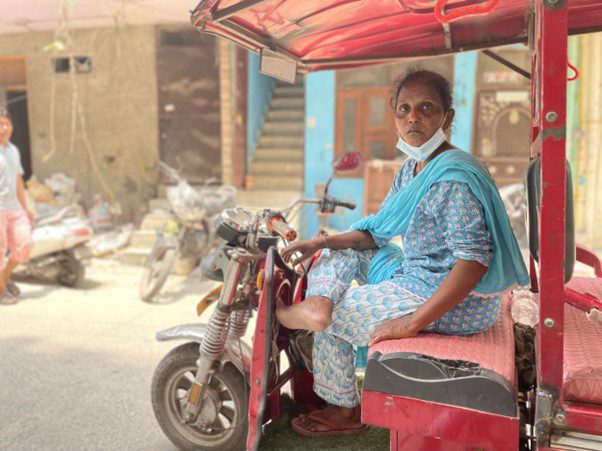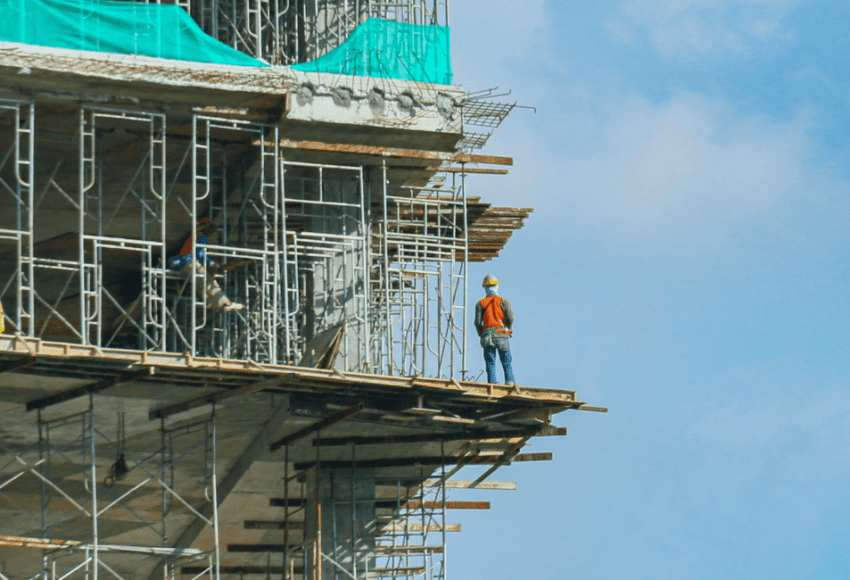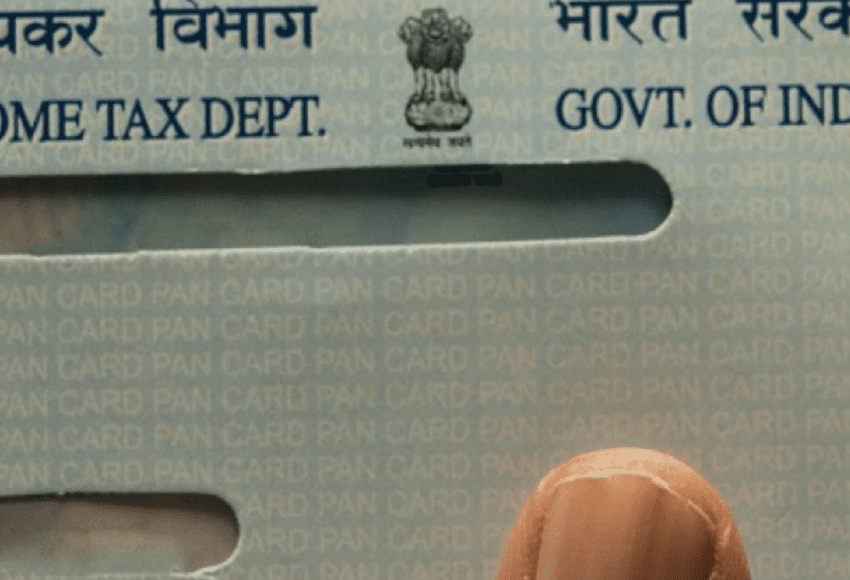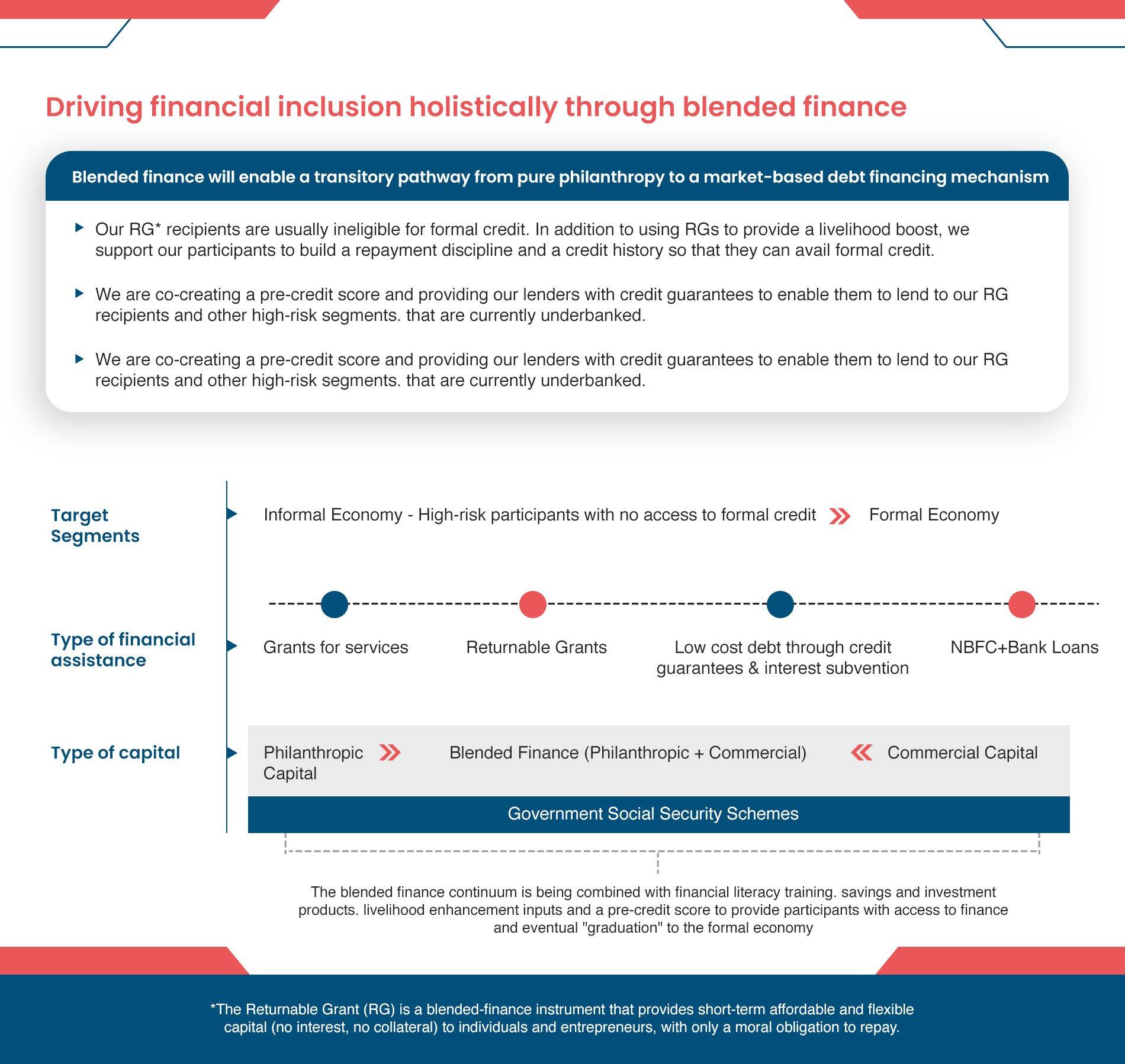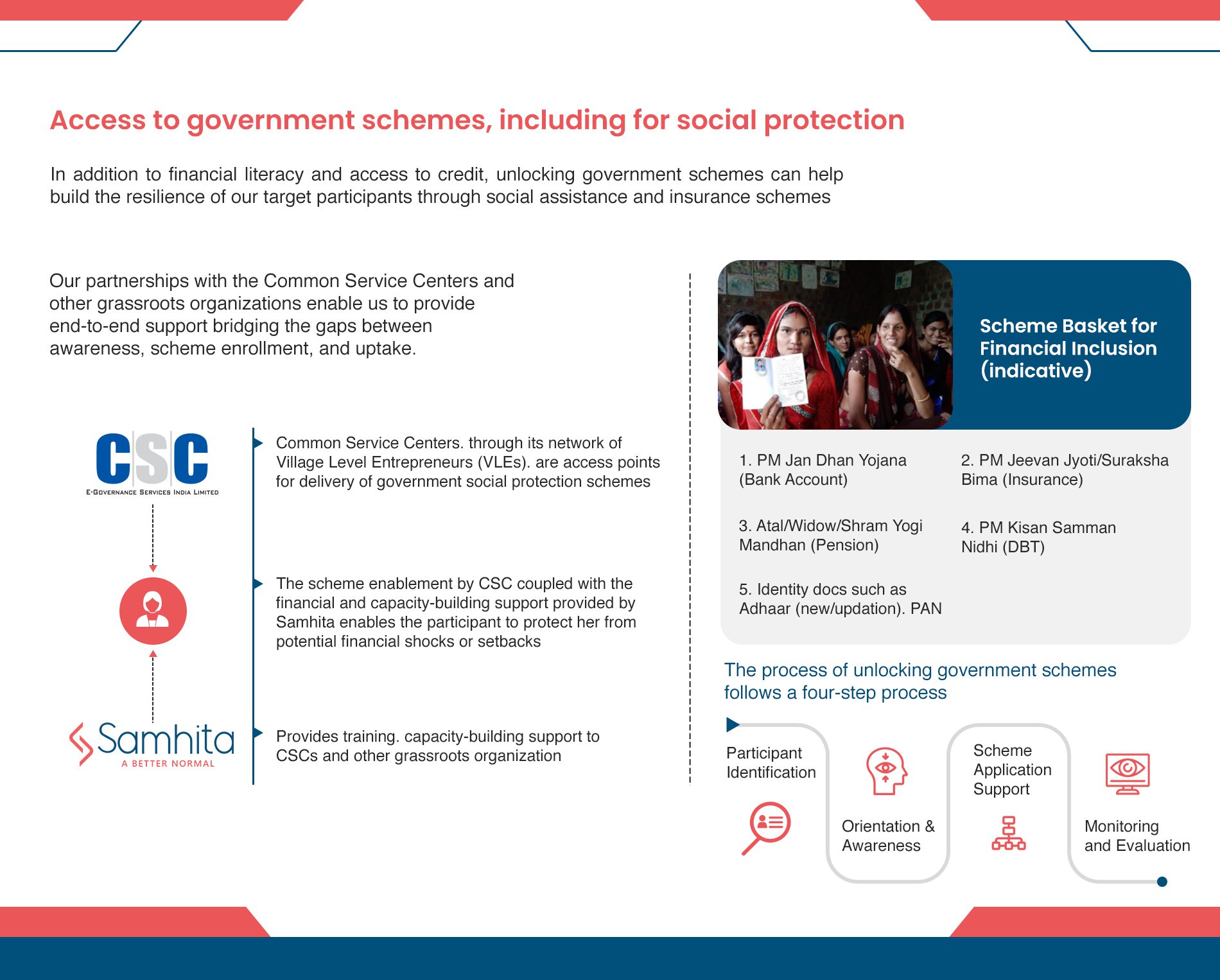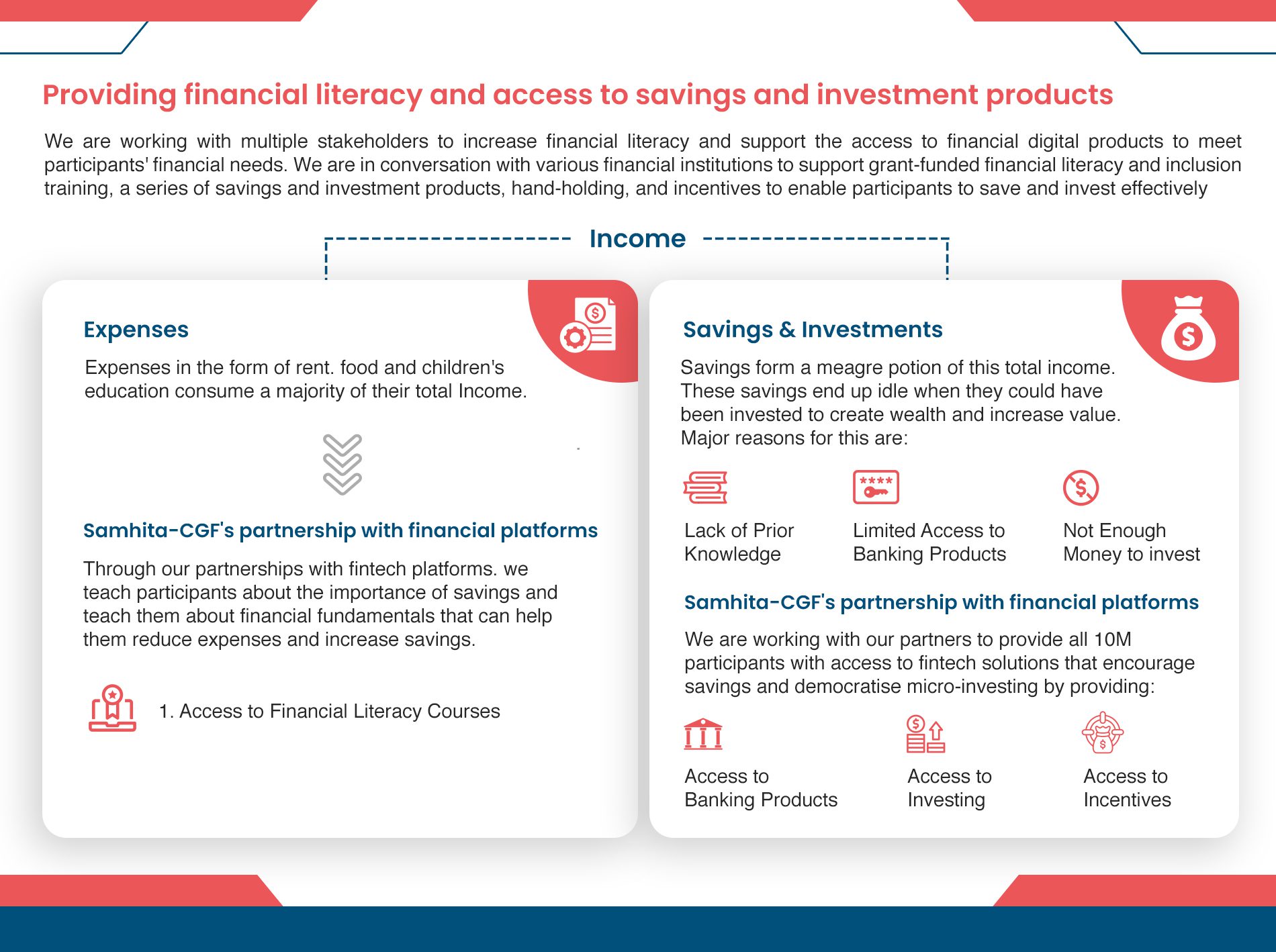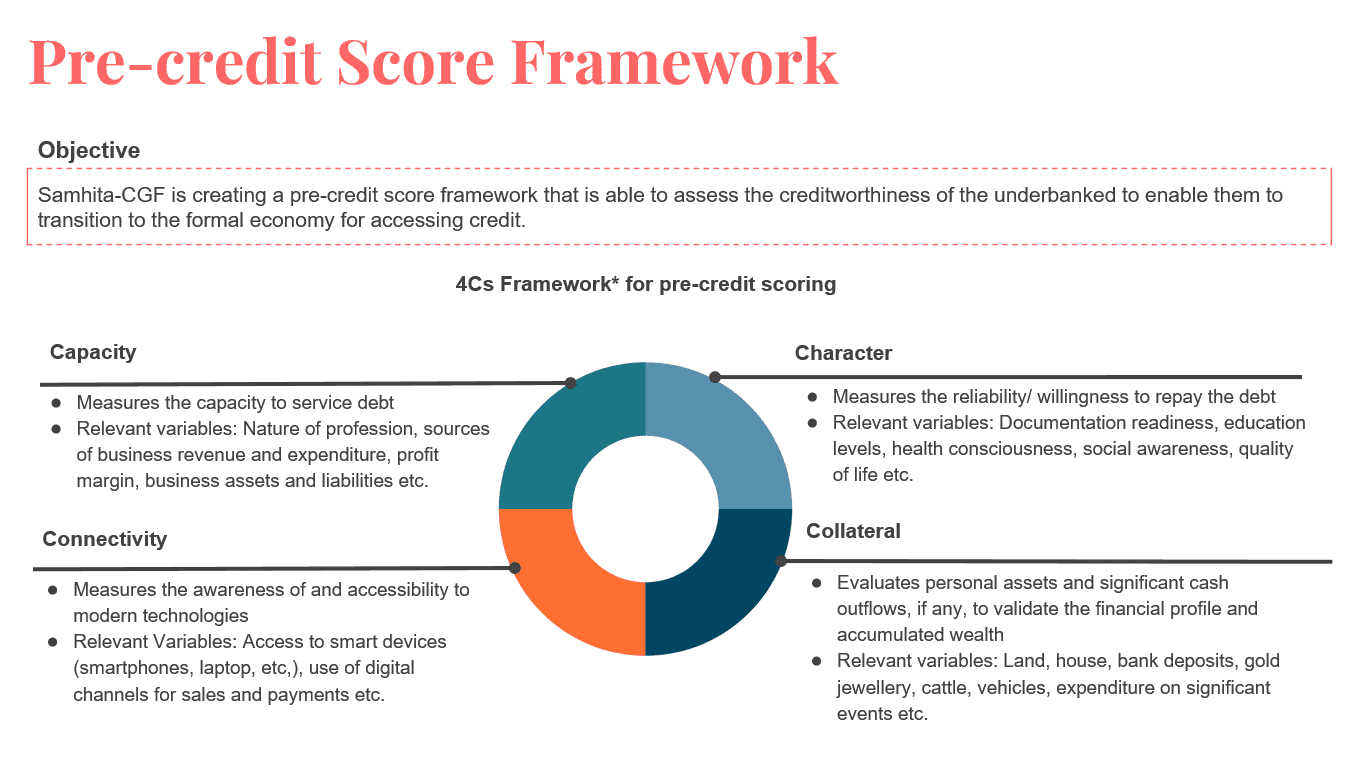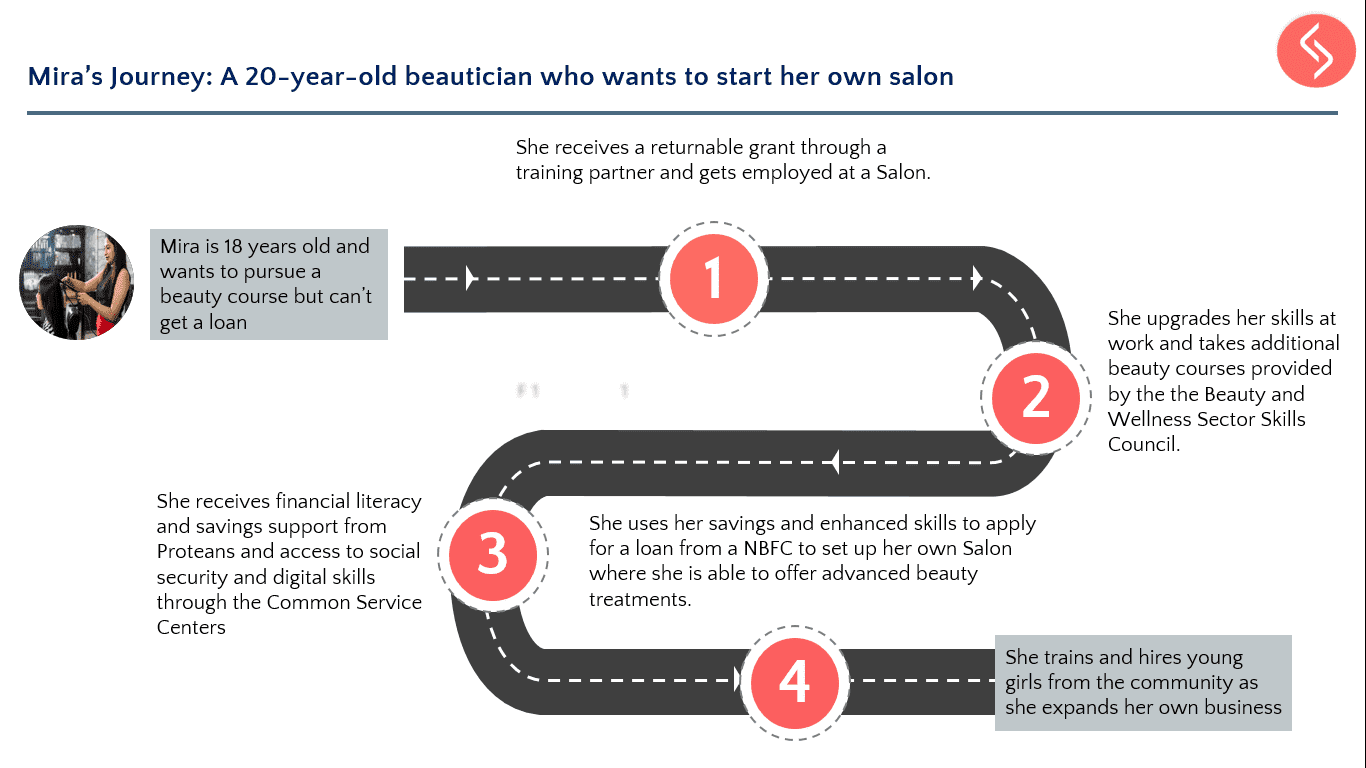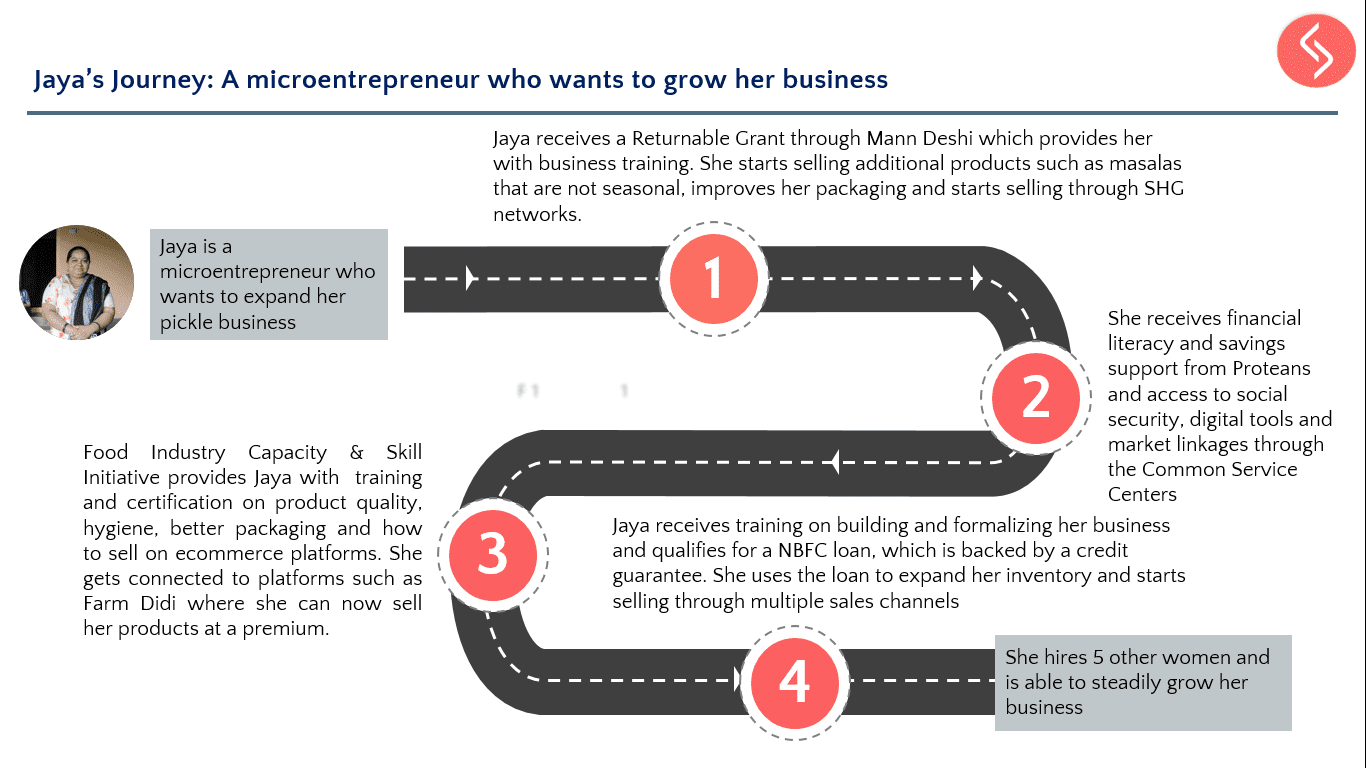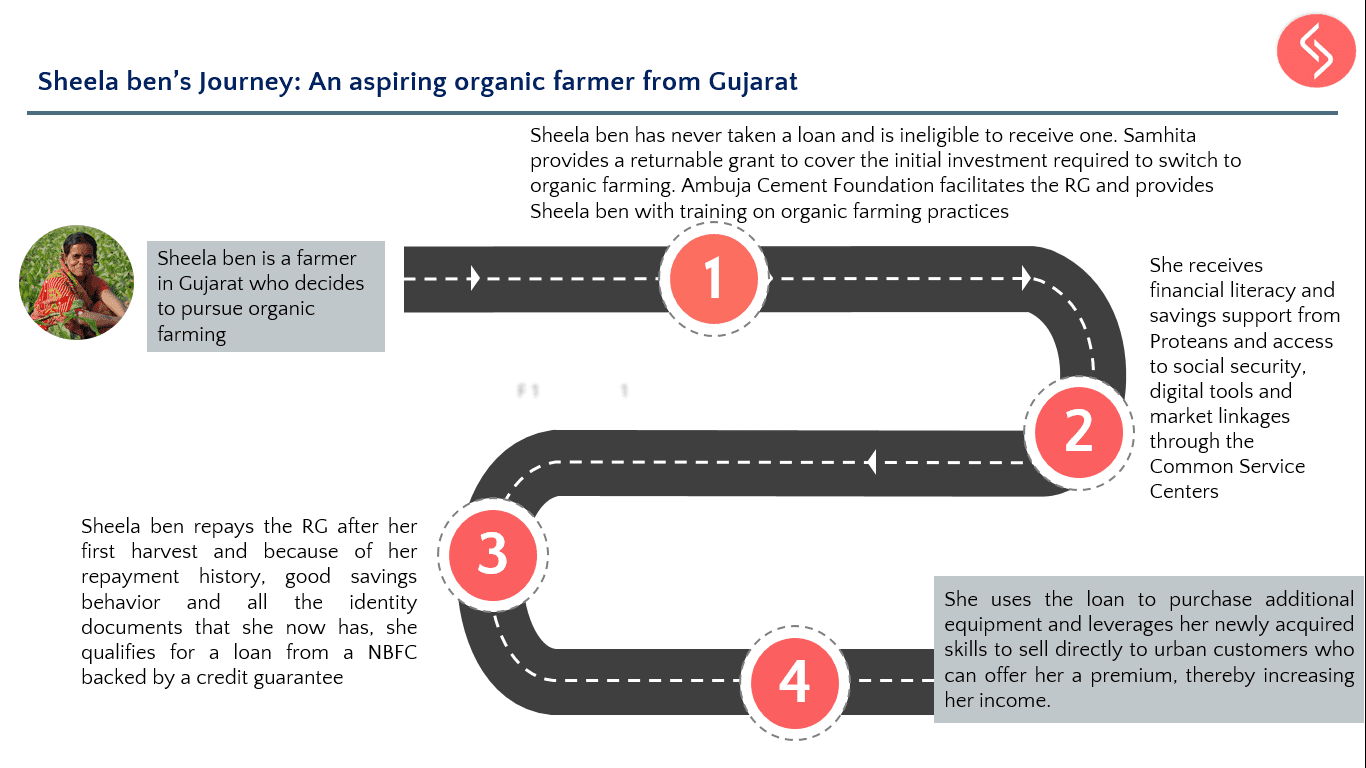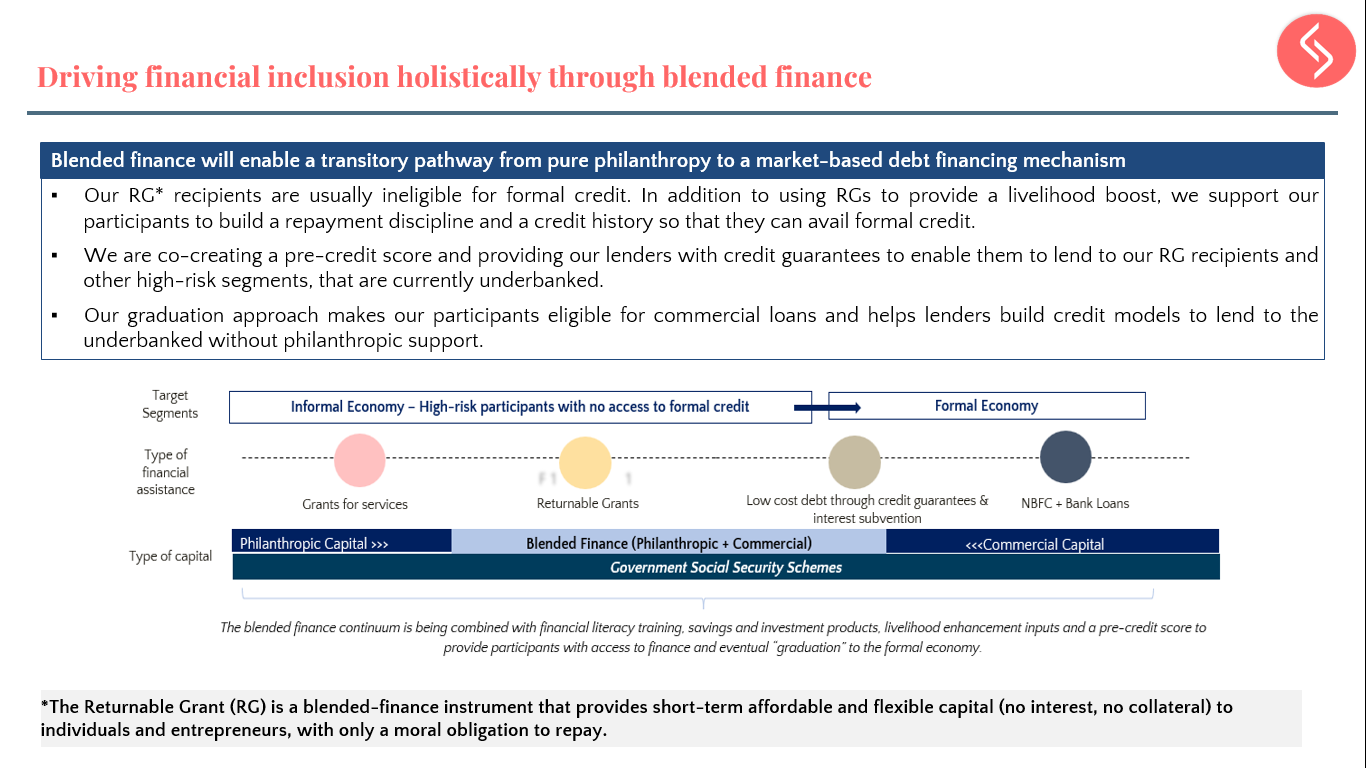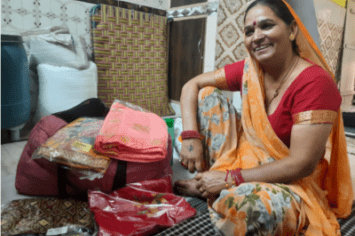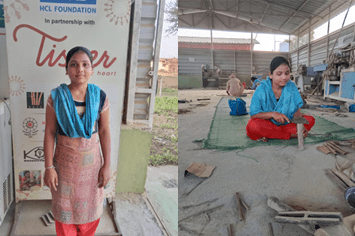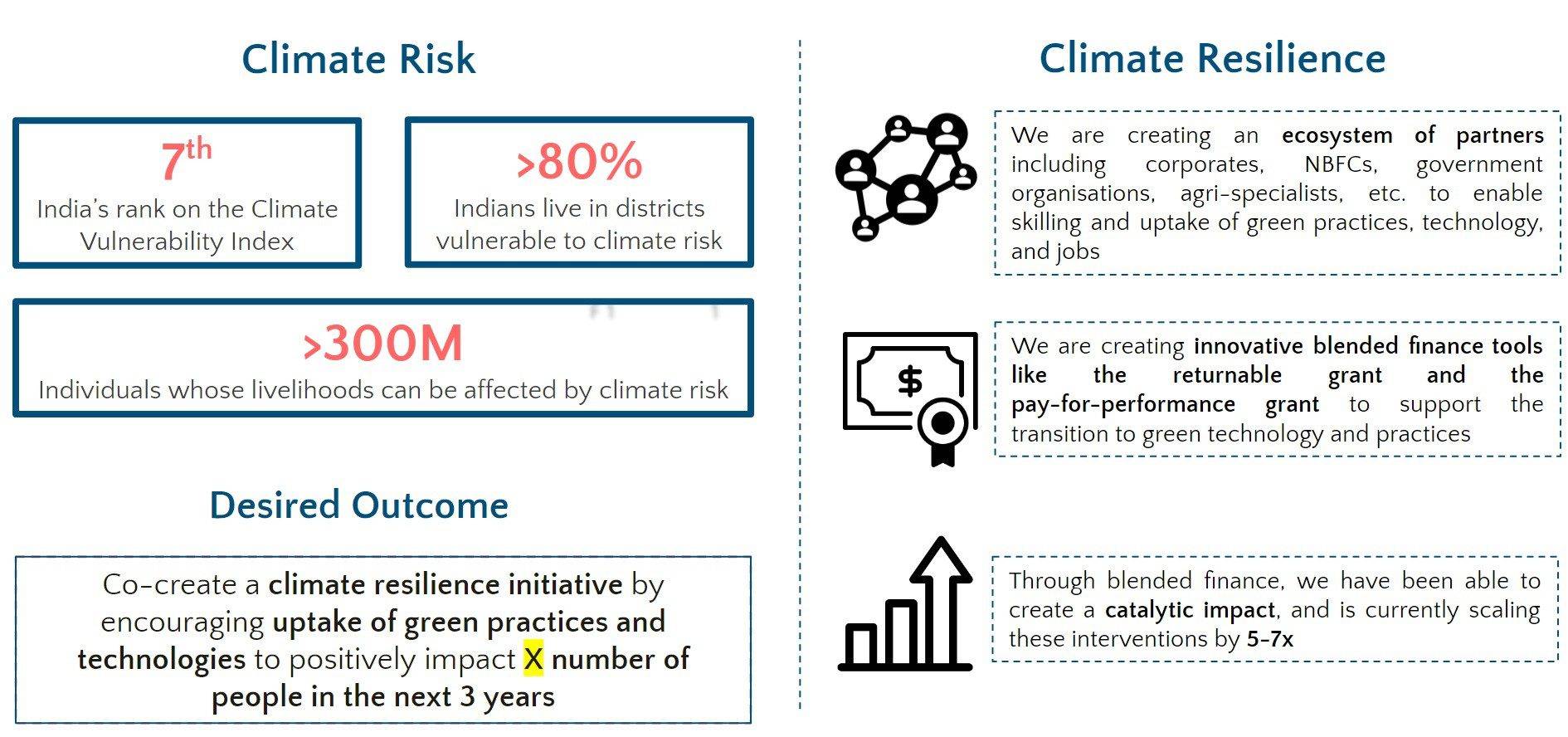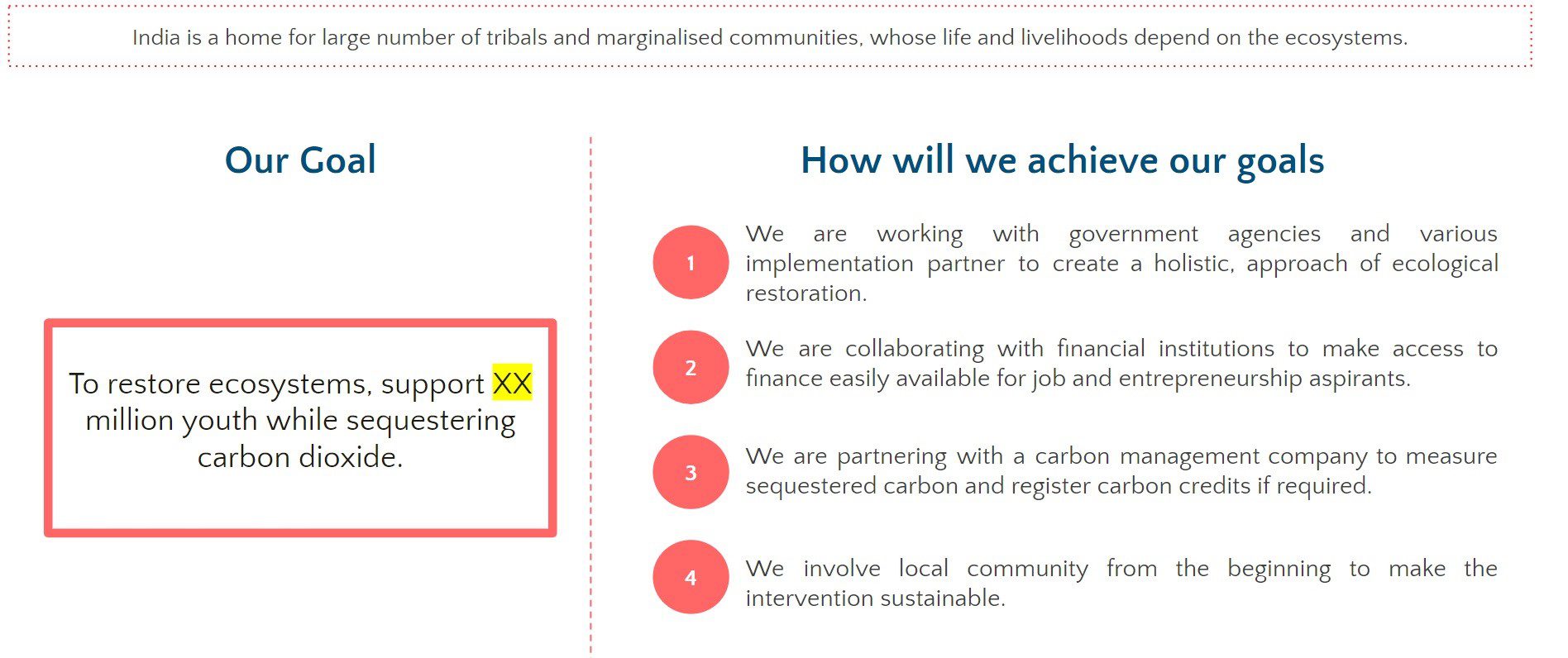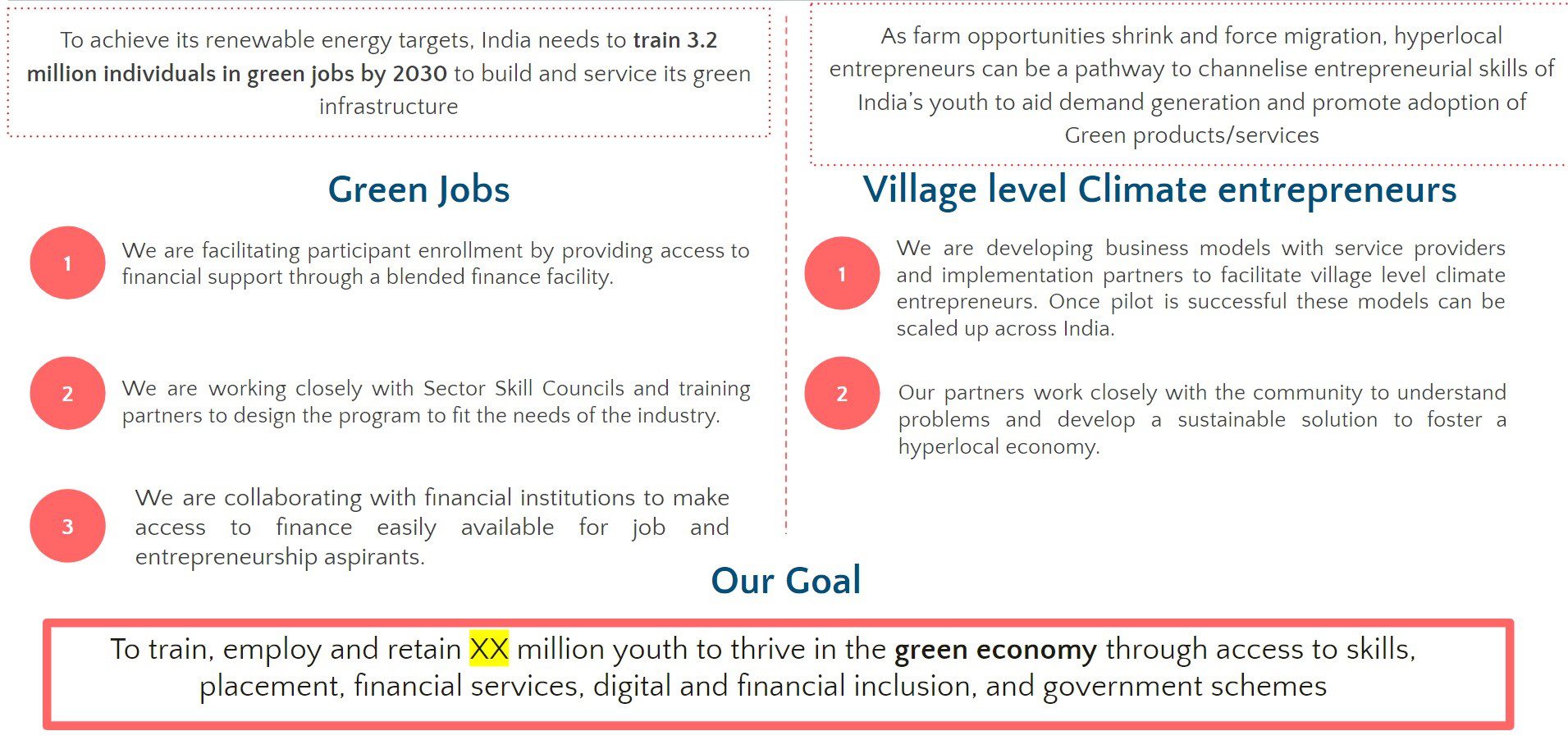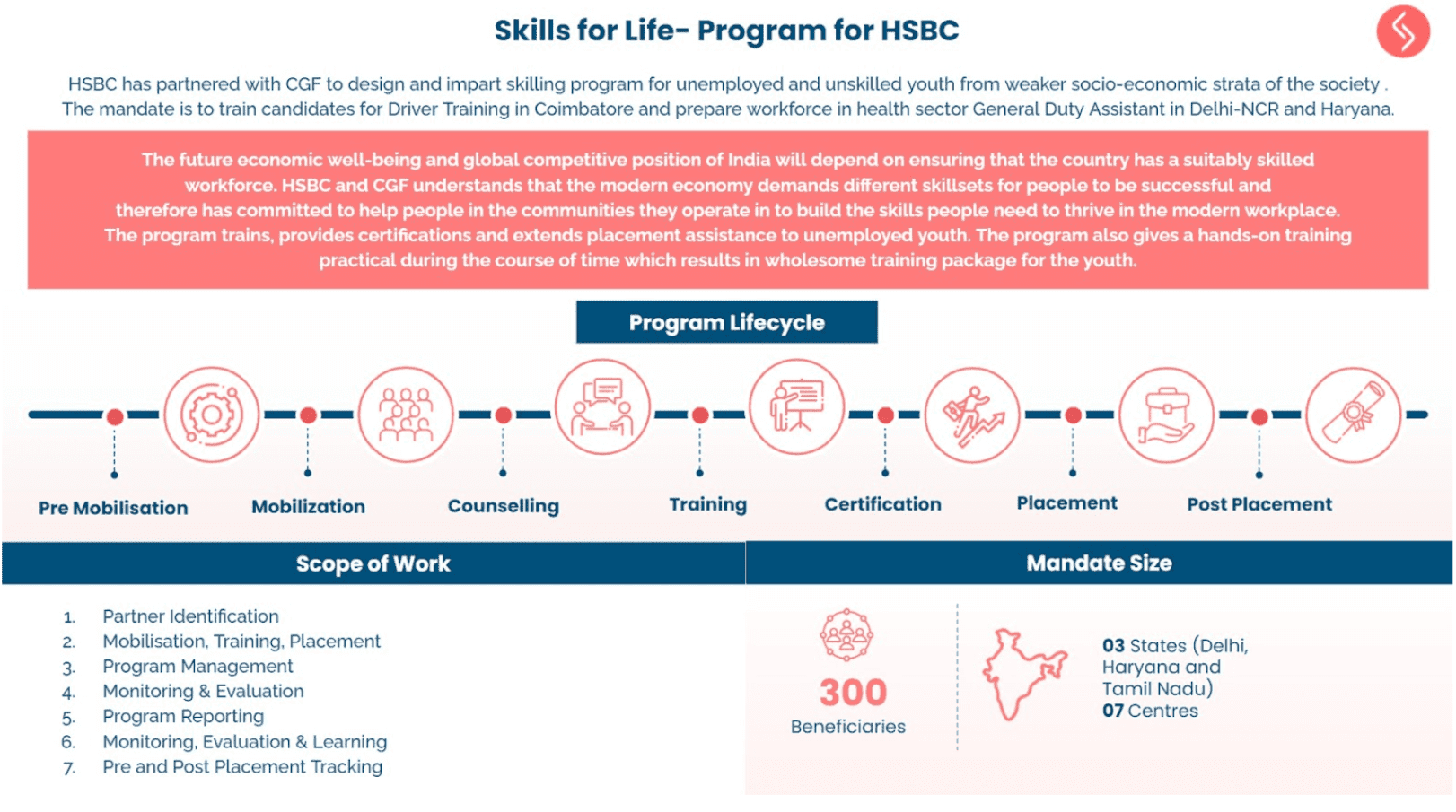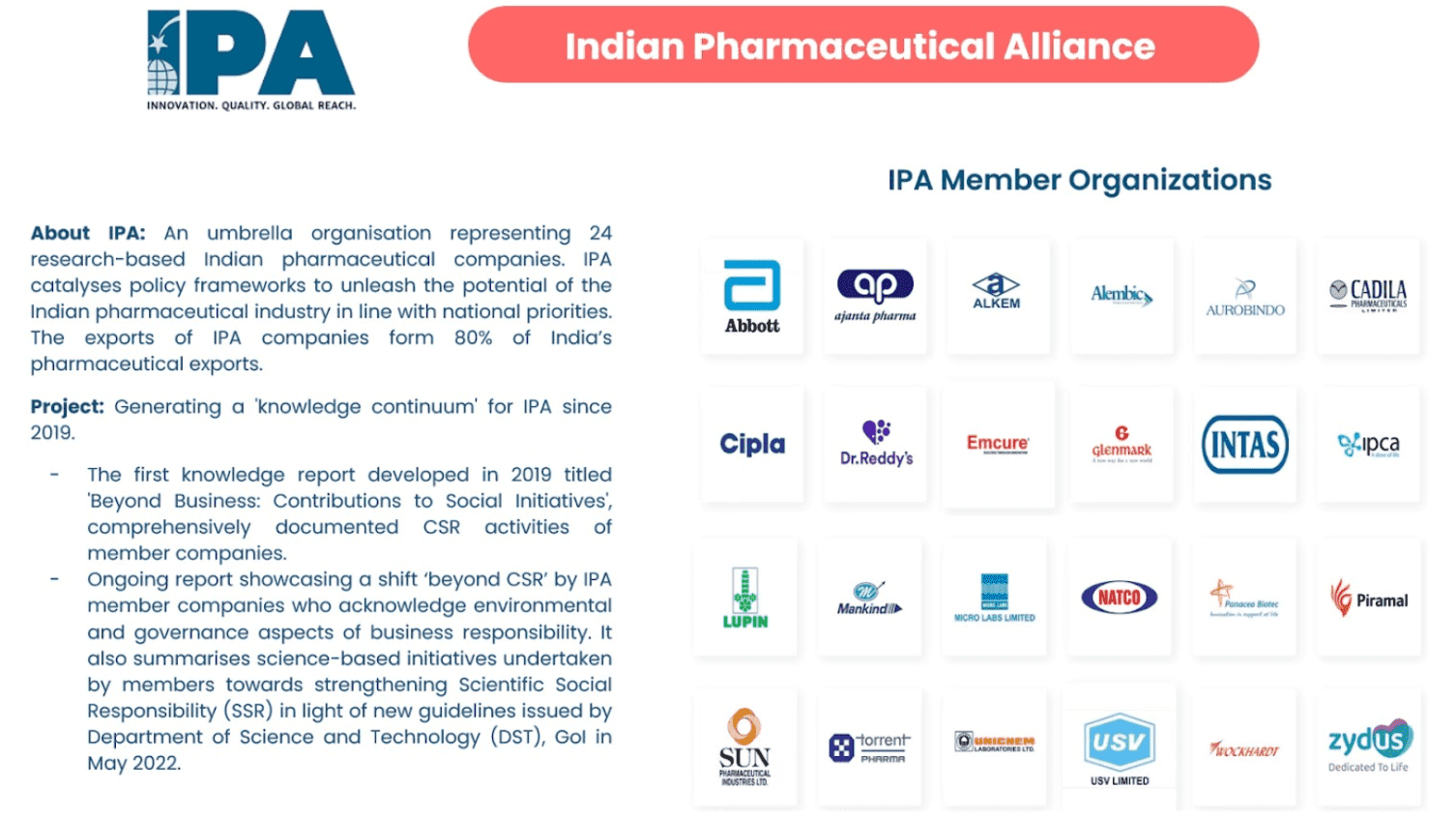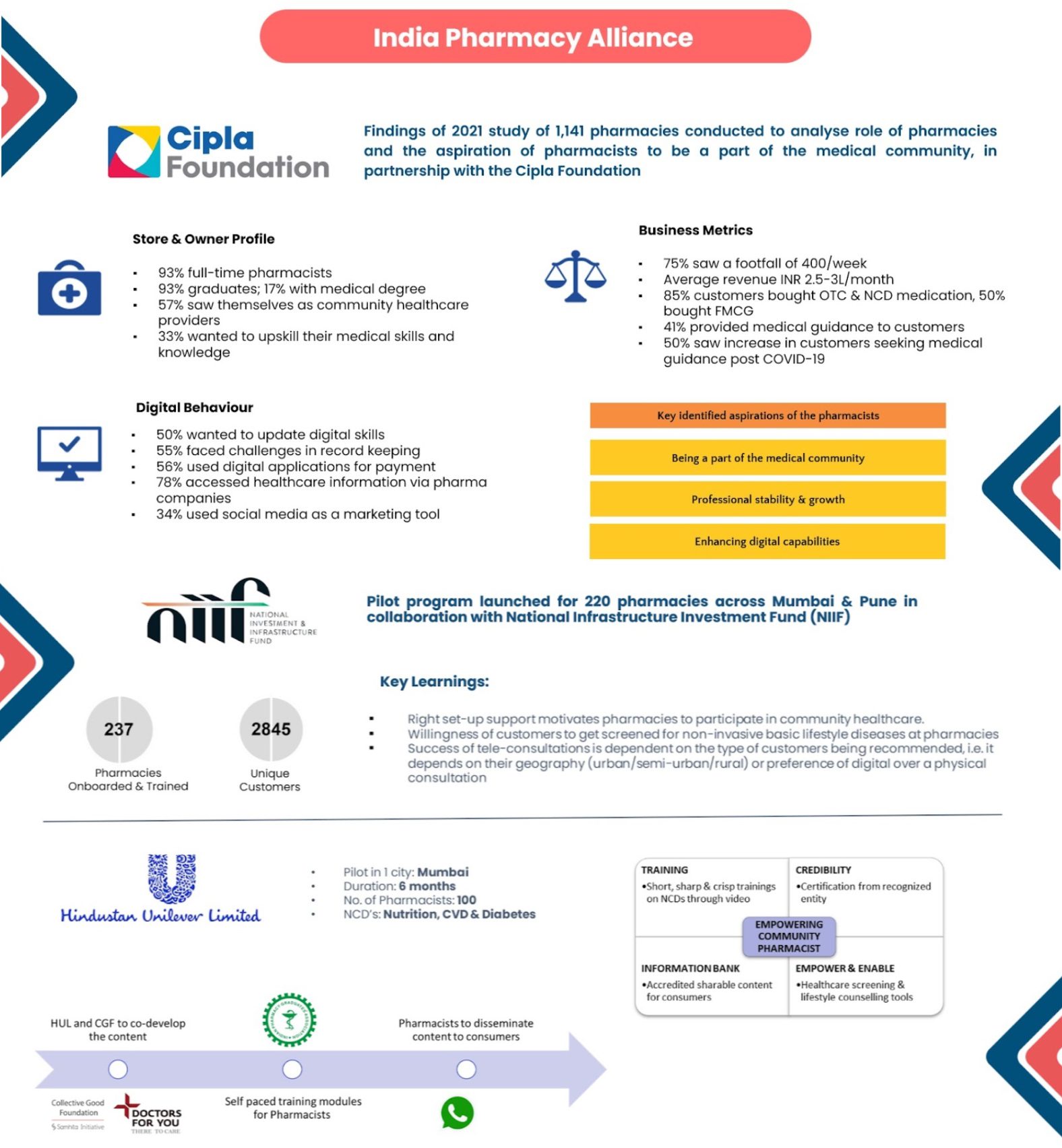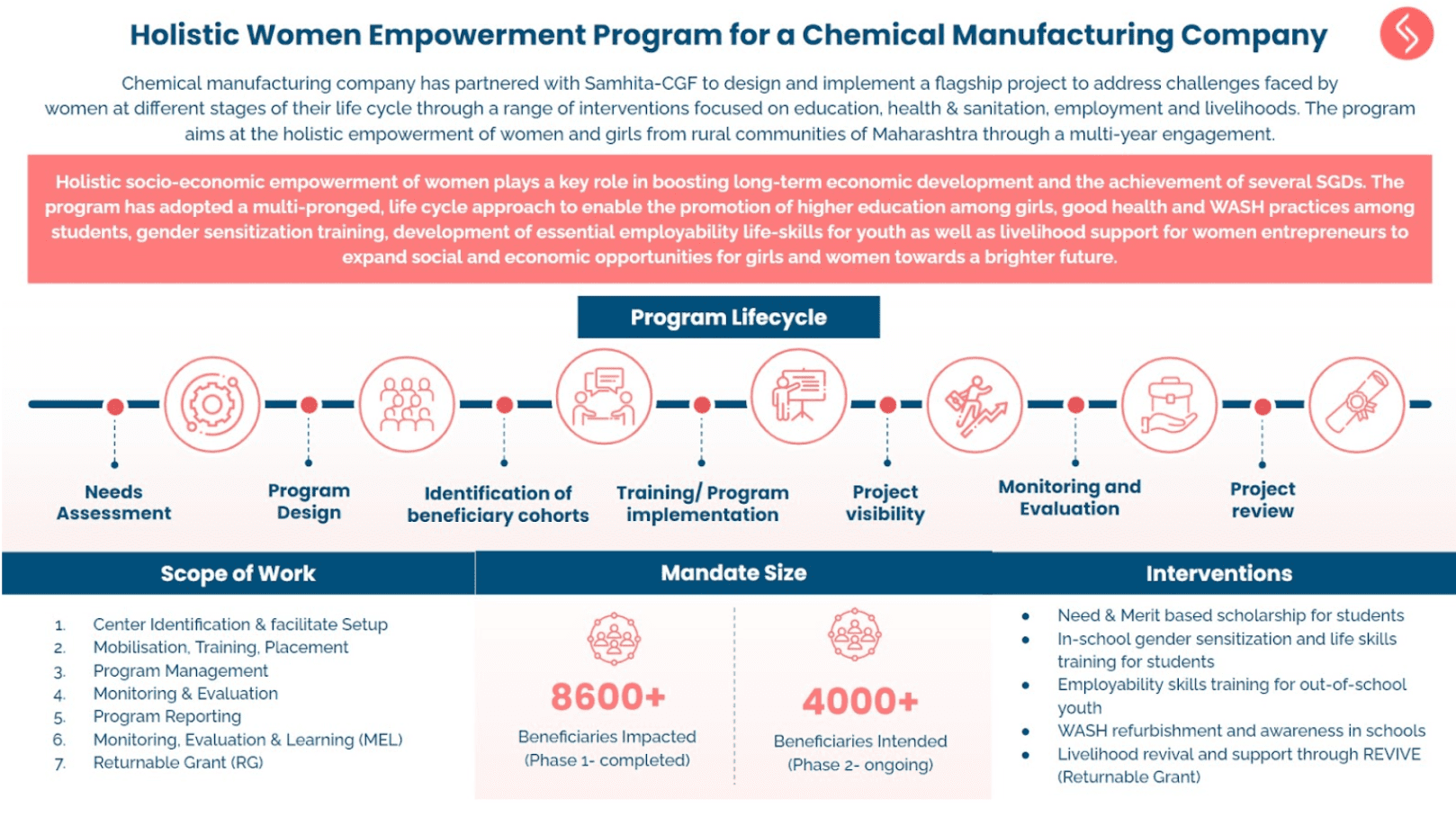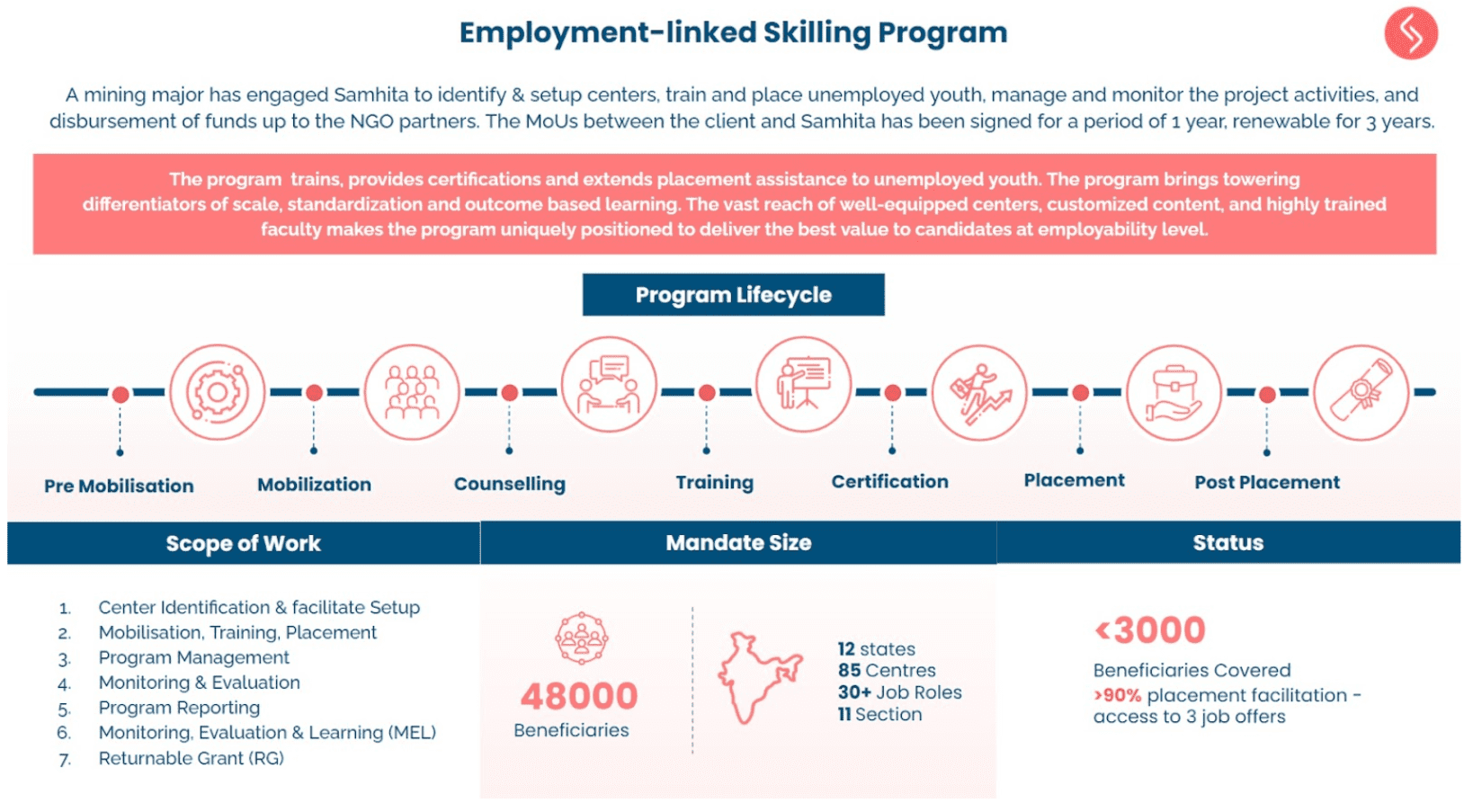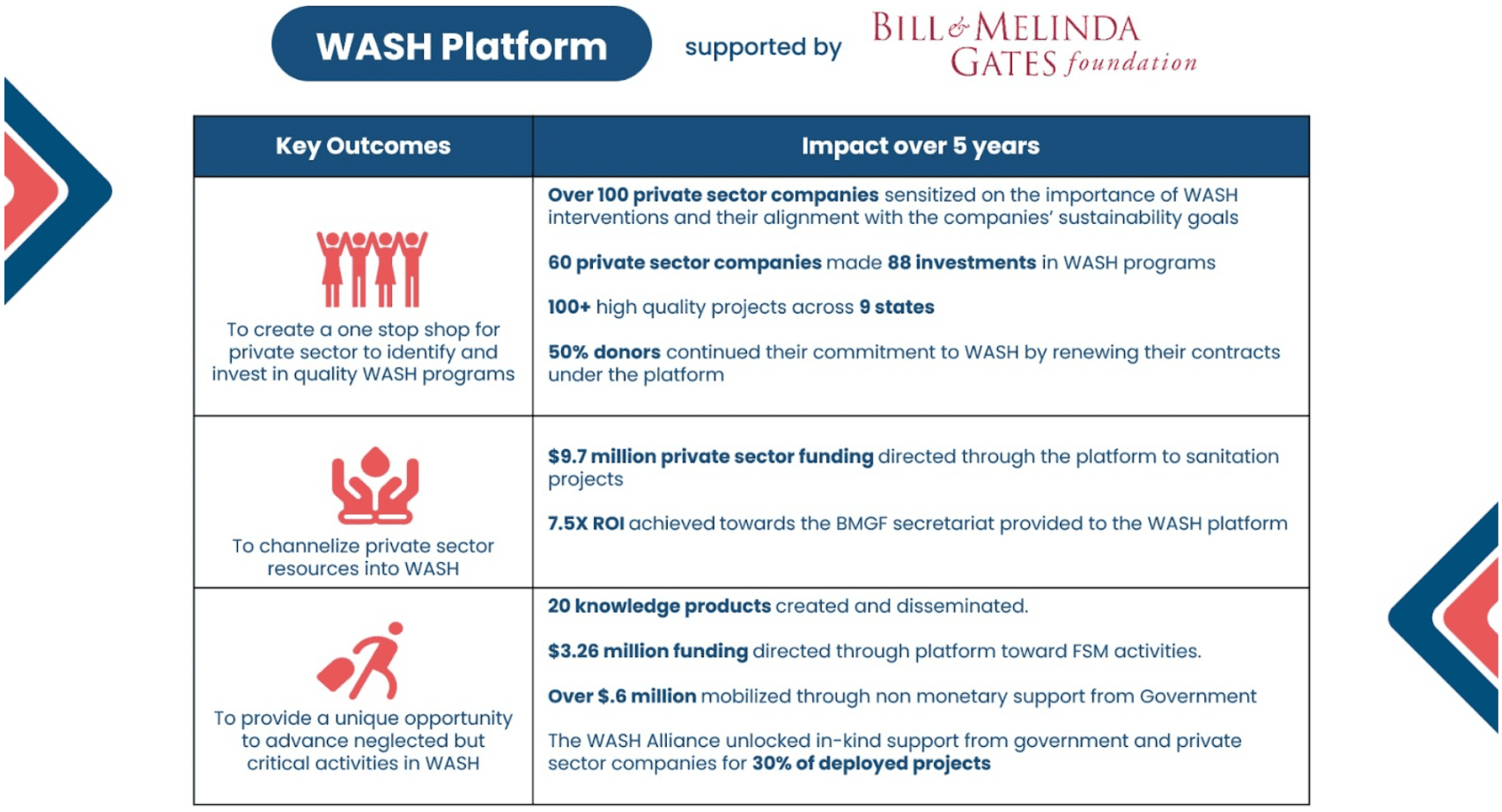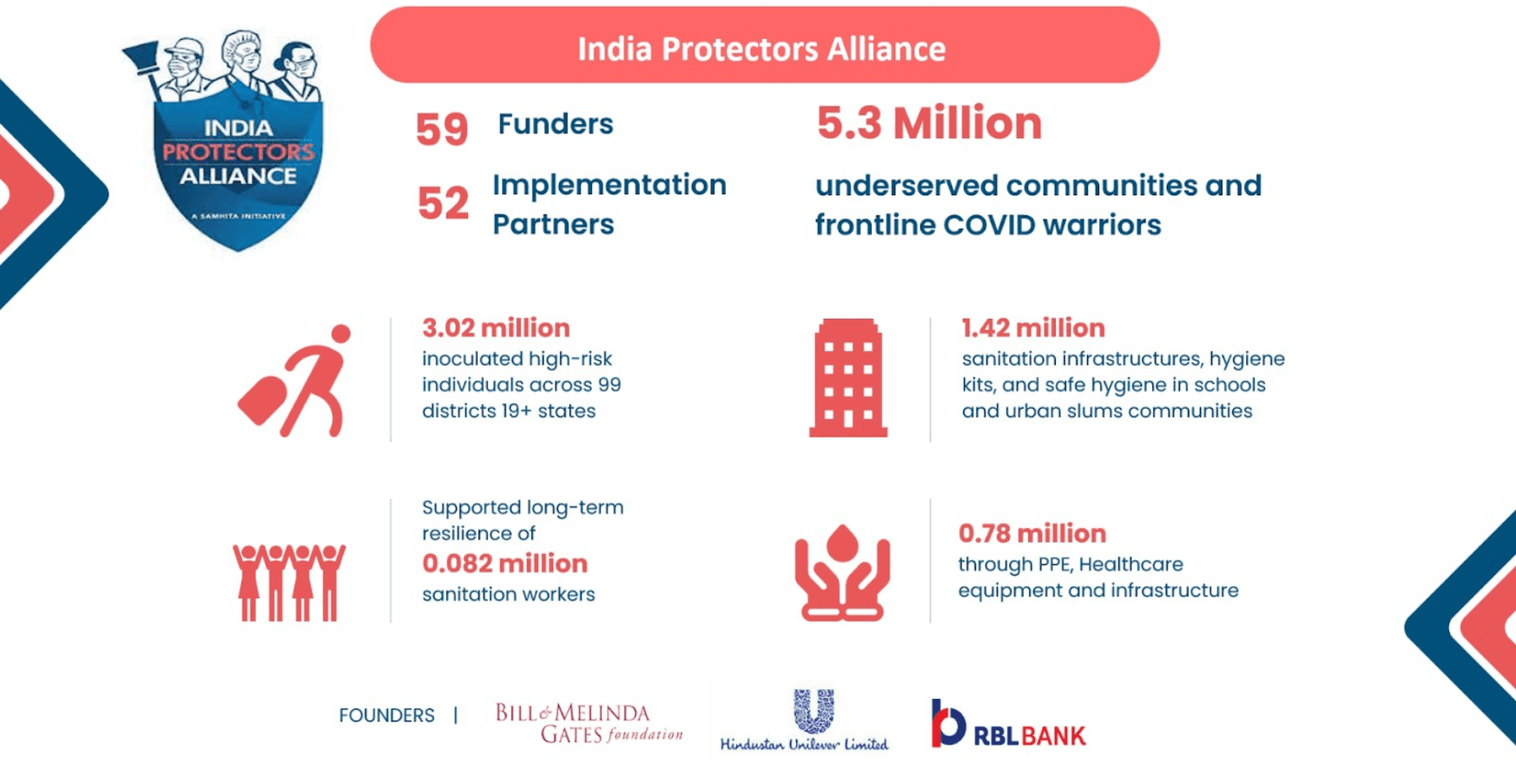REVIVE Alliance: Mini-reports
REVIVE in Numbers
716,276
People Impacted
$18.05 million
Funds committed towards REVIVE
5
Anchor Catalysts Partners
24
Catalyst Partners
78
Impact Partners
31
States and Union Territories
REVIVE in Numbers
716,276
People Impacted
$ 18.05 million
Funds committed towards REVIVE
5
Anchor Catalysts Partners
24
Catalyst Partners
78
Impact Partners
31
States and Union Territories
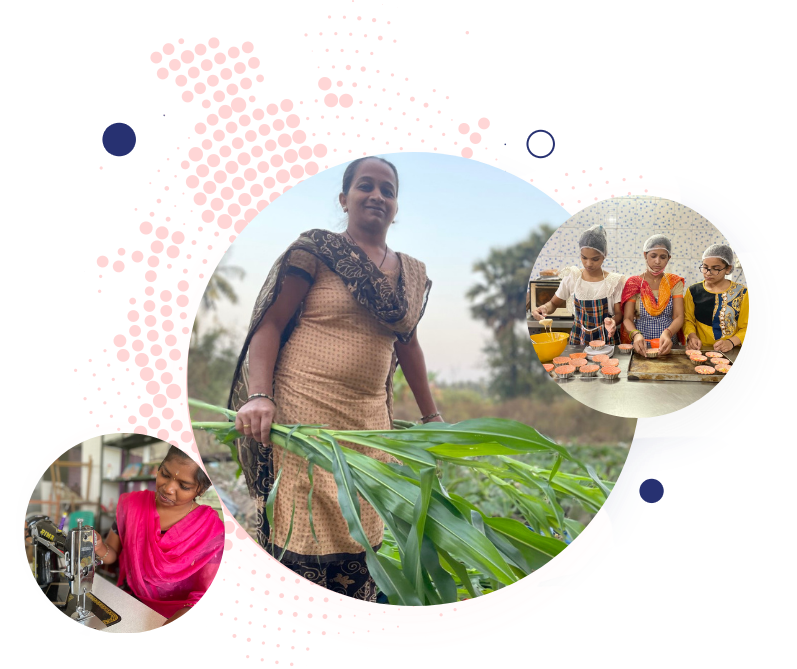
A Time to REVIVE
The COVID-19 pandemic caused significant social, economic, and financial disruptions worldwide. In India, the effects of COVID-19 were far-reaching with millions of people being impacted and unemployment rates soaring to 23.52%. Within this, the informal sector, comprising artisans, farmers, street vendors, home-based workers, and micro-contractors was the hardest hit. Close to 120 million workers lost their jobs due to sudden instability in multiple sectors, another 120 million small and marginal farmers struggled to harvest and distribute their crops, and nearly 7 million artisans and 10 million street vendors lost their livelihoods. REVIVE Alliance began as a response to the immediate needs of the sector during the pandemic and to aid their recovery and income growth.
Key Facts at a Glance
- 70.4% of participants were women.
- 42,394 participants received the Returnable Grants where the success rate of repayment was 91% and the multiplier effect ranged from 2-5x, going up to 5x in some cases.
- REVIVE’s focus on economic progress contributes directly to four major United Nations’ Sustainable Development Goals (SDGs). These are SDG 3- Good Health and Well-Being; SDG 4- Quality Education; SDG 5- Gender Equality; SDG 6- Clean Water and Sanitation; SDG 8- Decent Work and Economic Growth; SDG 10- Reduced Inequalities; SDG 13- Climate Action and SDG 17- Partnerships for the Goals.
- 3 kinds of support were provided to participants that were: financial, resilience and capability and 5% participants received more than 1 intervention.
Key Facts at a Glance
- 70.4% of participants were women.
- 42,394 participants received the Returnable Grants where the success rate of repayment was 91% and the multiplier effect ranged from 2-5x, going up to 5x in some cases.
- REVIVE’s focus on economic progress contributes directly to four major United Nations’ Sustainable Development Goals (SDGs). These are SDG 3- Good Health and Well-Being; SDG 4- Quality Education; SDG 5- Gender Equality; SDG 6- Clean Water and Sanitation; SDG 8- Decent Work and Economic Growth; SDG 10- Reduced Inequalities; SDG 13- Climate Action and SDG 17- Partnerships for the Goals.
- 3 kinds of support were provided to participants that were: financial, resilience and capability and 5% participants received more than 1 intervention.
REVIVE’s Participant Profile
Age group: 18 to 40 years of age
50% focus on women
Income: < INR 50,000 ($604)/ month
Individuals impacted by the COVID-19 pandemic
New to Income (NTI), New to Credit (NTC), New to Formal Credit (NTFC)
Individuals impacted by the COVID-19 pandemic
New to Income (NTI), New to Credit (NTC), New to Formal Credit (NTFC)
50% focus on women
Age group: 18 to 40 years of age
Income: < INR 50,000 ($604)/ month
The Graduation Approach
We sought to provide a pathway for our participants through a ‘blended finance continuum’ of support that provides participants with step-by-step support to graduate to the formal economy.
We aimed to leverage our partner ecosystem to bridge the credit gap and help bring informal workers and micro-entrepreneurs into the formal economy by co-creating financial inclusion and livelihood improvement programs. Thus we began the development of two key public goods to support this graduation approach – the pre-credit score and credit guarantee facilities.

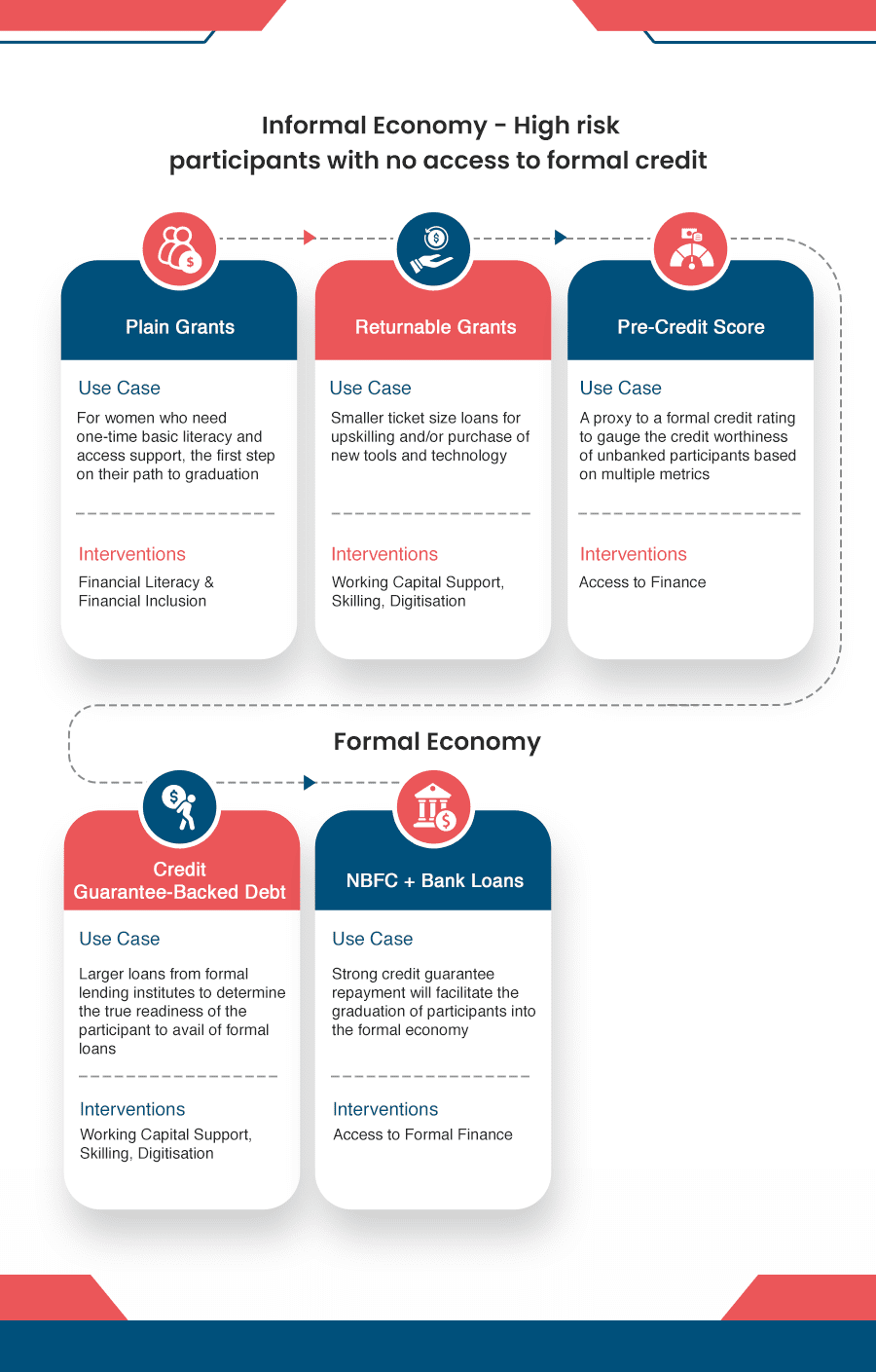
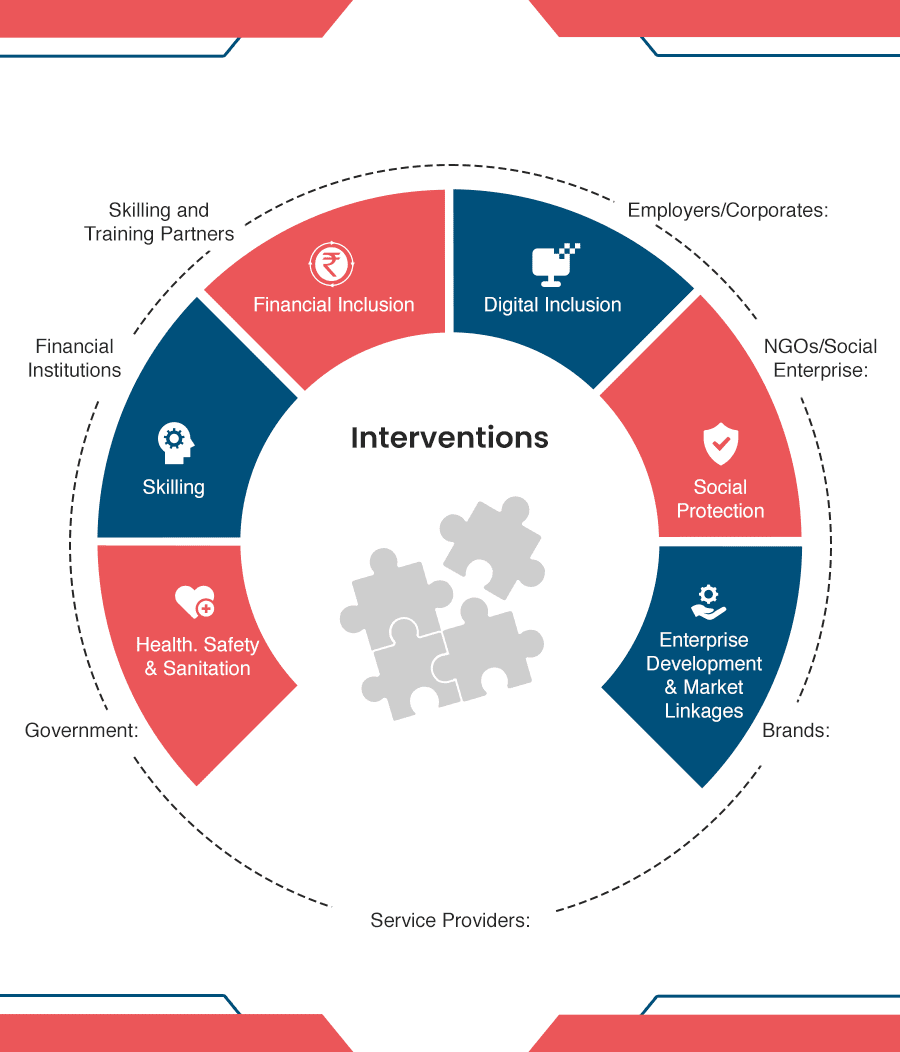
Informal Economy - High risk participants with no access to formal credit
Formal Economy
Informal Economy - High risk participants with no access to formal credit
The REVIVE Approach
Through close collaboration, we aim to leverage each partner’s strengths and experiences to co-create sustainable, high-impact programs. We aim to create ‘win-win-win’ programs and solutions for donors, execution partners, and participants to ensure each stakeholder can see the value of their contributions and benefit from the impact they are making. For example, we are working with multiple stakeholders, including banks, NBFCs, private sector companies, and philanthropic funders, to support large-scale financial inclusion for participants:
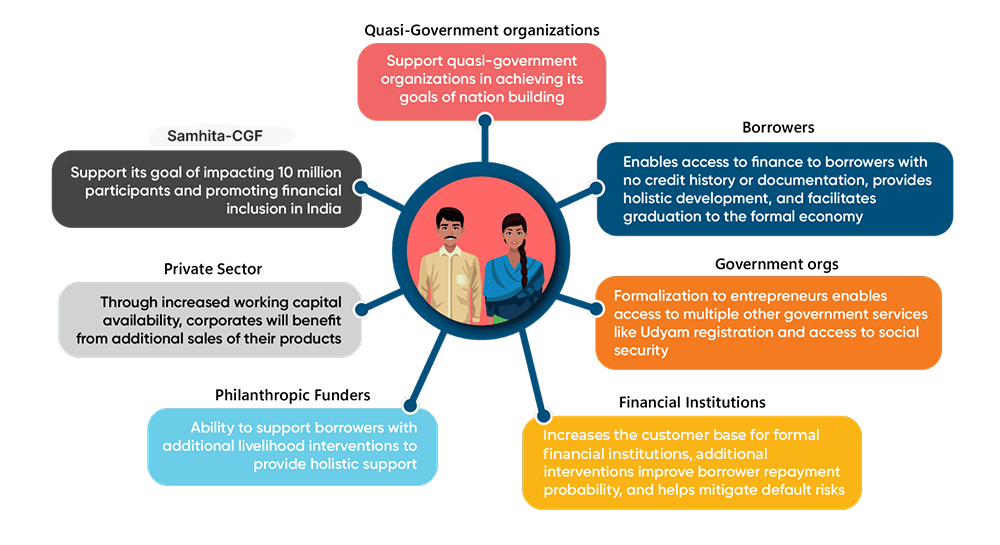

Informal Economy - High risk participants with no access to formal credit
Formal Economy
Informal Economy - High risk participants with no access to formal credit
The Revive Approach
Through close collaboration, we aim to leverage each partner’s strengths and experiences to co-create sustainable, high-impact programs. We aim to create ‘win-win-win’ programs and solutions for donors, execution partners, and participants to ensure each stakeholder can see the value of their contributions and benefit from the impact they are making. For example, we are working with multiple stakeholders, including banks, NBFCs, private sector companies, and philanthropic funders, to support large-scale financial inclusion for participants:
Skills and
Jobs
REVIVE’s partnership with an ecosystem of training partners and employees help deliver a range of critical skilling programs and job opportunities
Improved Social
Security
REVIVE enables easy and affordable access to government schemes and social protection to build resilience
Enterprise Development and Market Linkages
REVIVE works with entrepreneurs to increase knowledge optimize business operations and connect for market linkages
Financial Services for Inclusion
REVIVE uses inclusive financial instruments such as returnable grants (RGs) and credit guarantees, to provides access to timely and affordable capital that are aligned to an individual’s need
Digital Empowerment
REVIVE provides all participants with relevant digital literacy to equip job seekers and entrepreneurs with digital skills, tools and networks to adapt and navigate change
Skills and
Jobs
REVIVE’s partnership with an ecosystem of training partners and employees help deliver a range of critical skilling programs and job opportunities
Improved Social
Security
REVIVE enables easy and affordable access to government schemes and social protection to build resilience
Enterprise Development and Market Linkages
REVIVE works with entrepreneurs to increase knowledge optimize business operations and connect for market linkages
Financial Services for Inclusion
REVIVE uses inclusive financial instruments such as returnable grants (RGs) and credit guarantees, to provides access to timely and affordable capital that are aligned to an individual’s need
Digital Empowerment
REVIVE provides all participants with relevant digital literacy to equip job seekers and entrepreneurs with digital skills, tools and networks to adapt and navigate change
Plain Grants
Use Case
For women who need one-time basic literacy and access support, the first step on their path to graduation
Interventions
Financial Literacy & Financial Inclusion
Returnable Grants
Use Case
Smaller ticket size loans for upskilling and/or purchase of new tools and technology
Interventions
Working Capital Support, Skilling, Digitisation
Pre-Credit Score
Use Case
A proxy to a formal credit rating
to gauge the credit worthiness
of unbanked participants based on multiple metrics
Interventions
Access to Finance
Credit
Guarantee-Backed Debt
Use Case
Larger loans from formal lending institutes to determine the true readiness of the participant to avail of formal loans
Interventions
Working Capital Support. Skilling. Digitisation
Formal Economy
NBFC + Bank Loans
Use Case
Strong credit guarantee repayment will facilitate the
graduation of participants into the formal economy
Interventions
Access to Formal Finance
REVIVE’s 4 Key Public Goods
Pre-credit
Score
Credit Guarantee
(CG) Facility
Tech
Platform
Evaluation
Pre-Credit Score
REVIVE’s 5 Key Public Goods

Pre-credit Score

Credit Guarantee Facility
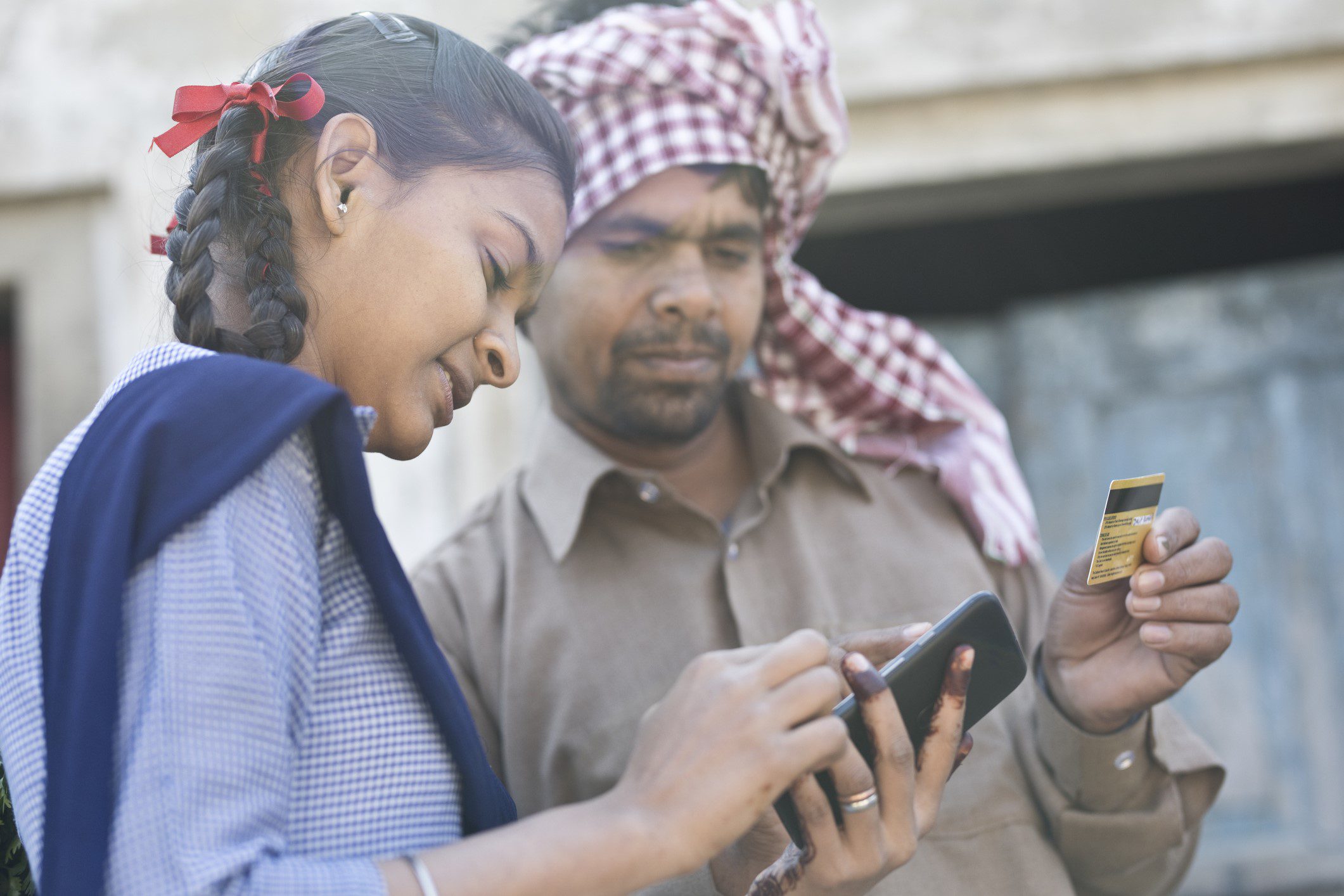
Tech Platform
Creating an integrated technology layer across all stakeholders is essential to the success of this initiative and our interoperable technology layer will facilitate streamlined onboarding, and service offerings across multiple partners.
The network architecture uses a microservices approach such that any new service can be added in a plug-and-play manner. In addition to building our own technology capabilities, we will also integrate with partner platforms wherever possible to further assist the delivery of interventions digitally. The various microservices can be broadly classified into:
- Network Management Microservices
- Participant Intervention Microservices
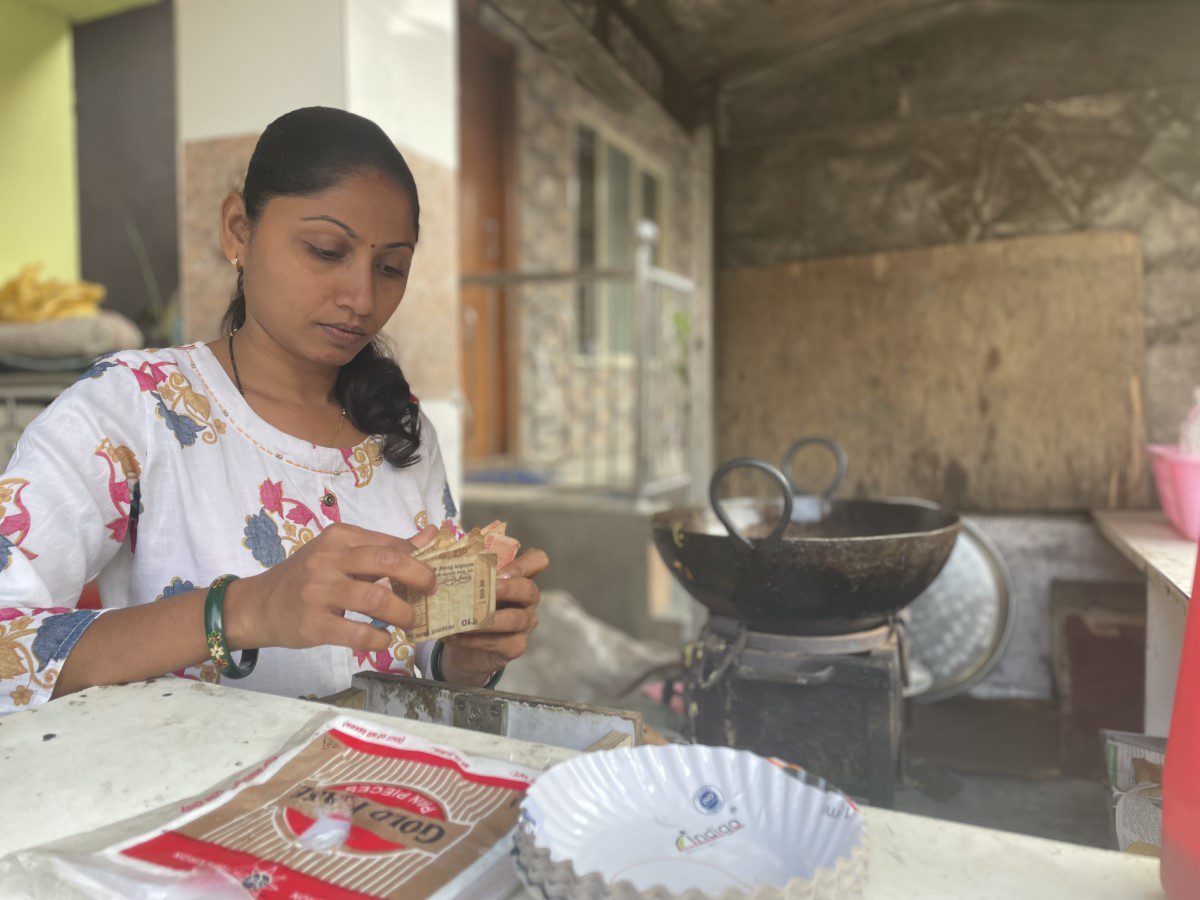
Evaluation
Our robust data analysis monitoring and evaluation frameworks enable us to understand the efficacy of interventions, and continuously optimize design and delivery to obtain maximum impact while minimizing cost for all network participants. We are also creating public goods, playbooks, and toolkits for various interventions and cohorts to disseminate best practices to support the network and ecosystem as a whole, and facilitate long-term, sustainable impact. We are creating three indices -, an Income Index, a Resilience Index, and a Women’s Economic Empowerment Index – to support the generation of key insights and learnings to continuously improve our programs.
What our partners have to say
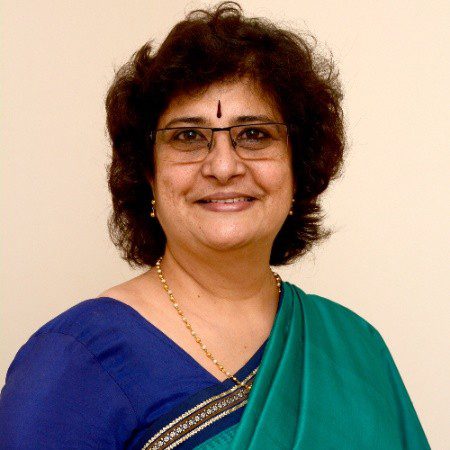

What Our Partners Have to Say
Samhita-CGF’s expertise in supporting women entrepreneurs perfectly complemented Mann Deshi’s mission of empowering rural women with the tools and knowledge they need to break free from poverty’s grip.Supporting Mann Deshi through REVIVE, we supported more than 5,300 vulnerable women across Maharashtra with Returnable Grants and consistently saw close to 100% repayment rates in spite of the pandemic and multiple economic crises that the women had weathered.
Chetna Gala Sinha, Founder – Mann Deshi Foundation, talks about how this partnership provided holistic access to credit and livelihood support to women entrepreneurs at a time when they needed it the most.
Samhita-CGF, through REVIVE, and its approach to livelihood recovery was closely aligned with Avendus’ program on promoting entrepreneurship among rural women communities. Together, we addressed critical issues faced by women entrepreneurs: viz. access to finance, market linkages, and income diversification. We are on our way to impacting 800 women through Returnable Grants, with an astounding 97% repayment rate.
Sapna Prabhakaran, Executive Director and Head – Marketing & Corporate Communications, Avendus talks about this amazing initiative.
Samhita-CGF’s collaboration with Tisser brought together multiple partners and funders committed toward the holistic growth of vulnerable women artisans by layering on complementary interventions. Google, MSDFF, Vinati Organics supported access to credit for the artisans, with an RG repayment rate of over 97%. The participants also received digital and financial literacy/prudence training through Linkedin as well as access to at least 2 social security schemes/entitlements through Samhita-CGF supported by CMS Swasti.
Dr. Megha Phansalkar, Founder – Tisser Artisans Trust, talks about how the partnership with Samhita-CGF through REVIVE ignited their entrepreneurial spirit in these women artisans, and paved the way for a brighter, more inclusive future.
Revive Partners
![]()
![]()

![]()
![]()

![]()
![]()
![]()
![]()

![]()
![]()

![]()
![]()
![]()
![]()

![]()
![]()

![]()
![]()
Latest News and Updates
- June 13, 2024
In the pursuit of comprehensive financial inclusion innovations, Samhita-CGF’s pioneering network alliance is steadfastly working towards addressing the credit gap
- November 2, 2023
To push towards sustainable development goals, the voice and agency of women are catalysts for change and progress. Recognizing this,
- October 16, 2023
In a world striving for new innovations in pursuing holistic financial inclusion, Samhita-CGF takes a bold step forward with its
- March 20, 2023
Artisan: Salma Ben Rajanpur, Gujarat Supported by STFC’s sewing training 44-year-old Salma Ben comes from the Rajanpur area of Gujarat.
- June 7, 2022
“During these tough times I was struggling, distressed and did not have any stable source of income. This is when
- June 6, 2022
“It’s almost like this rickshaw is currently our caretaker. It’s the sole reason we’re able to survive.” When the pandemic
- November 8, 2021
- November 8, 2021
- November 2, 2021
- November 2, 2021
